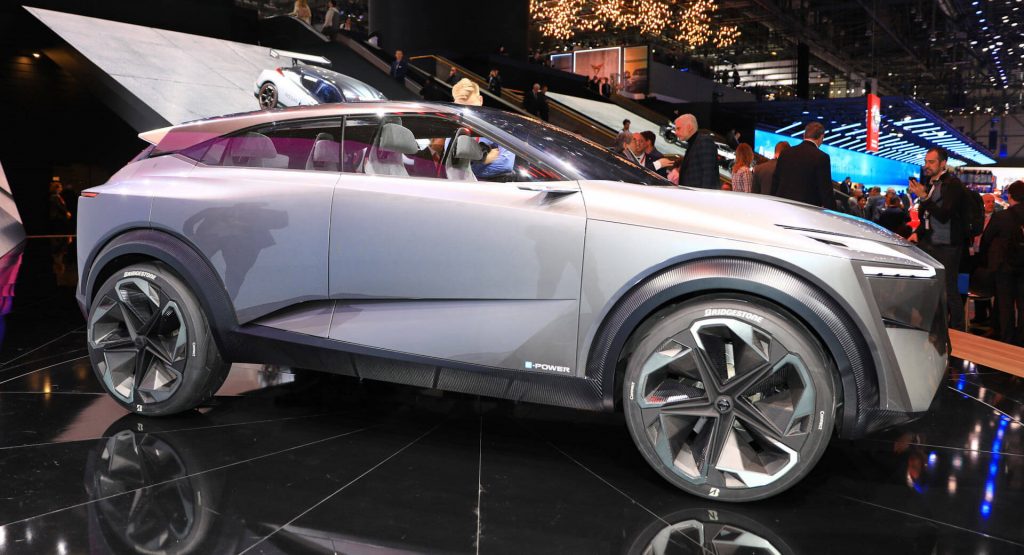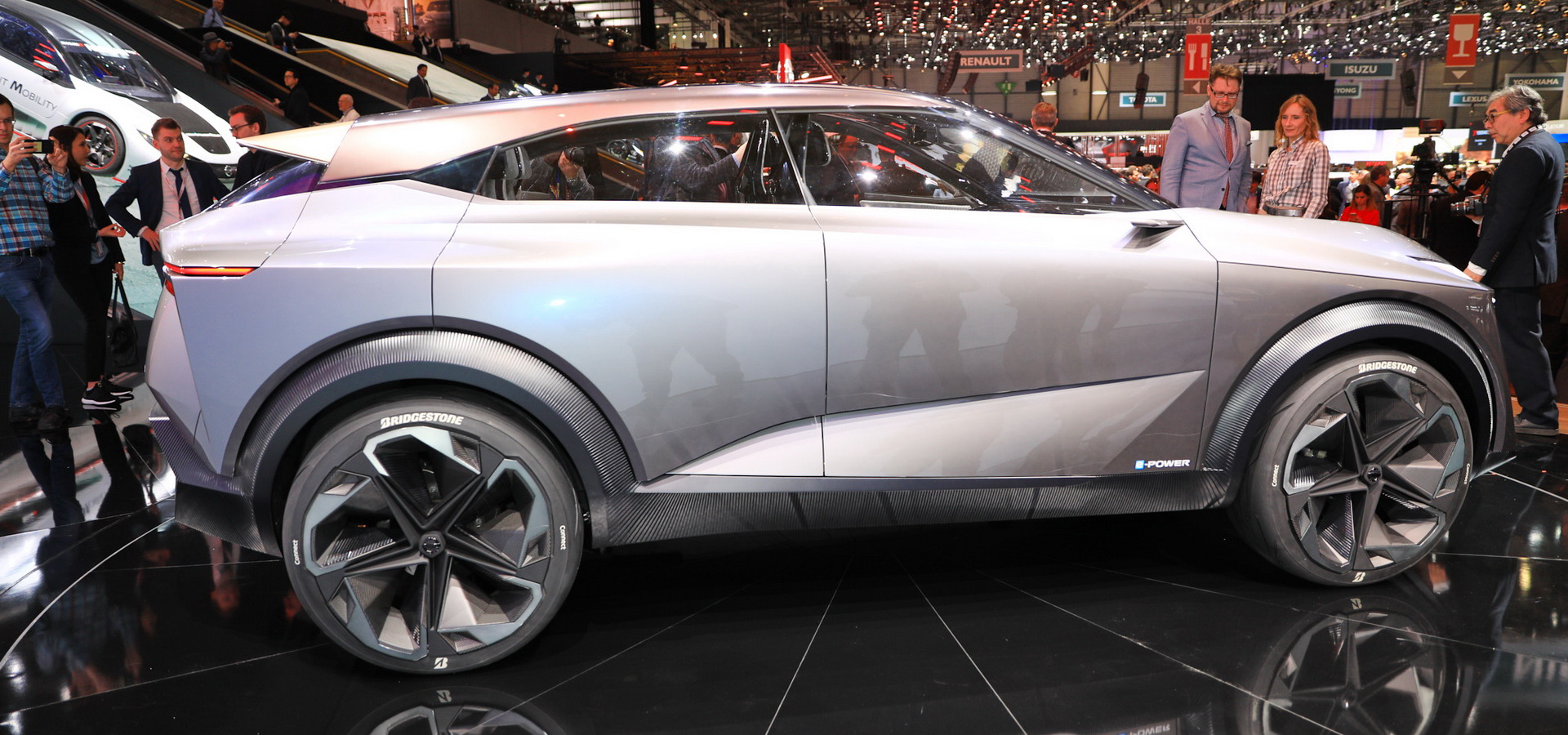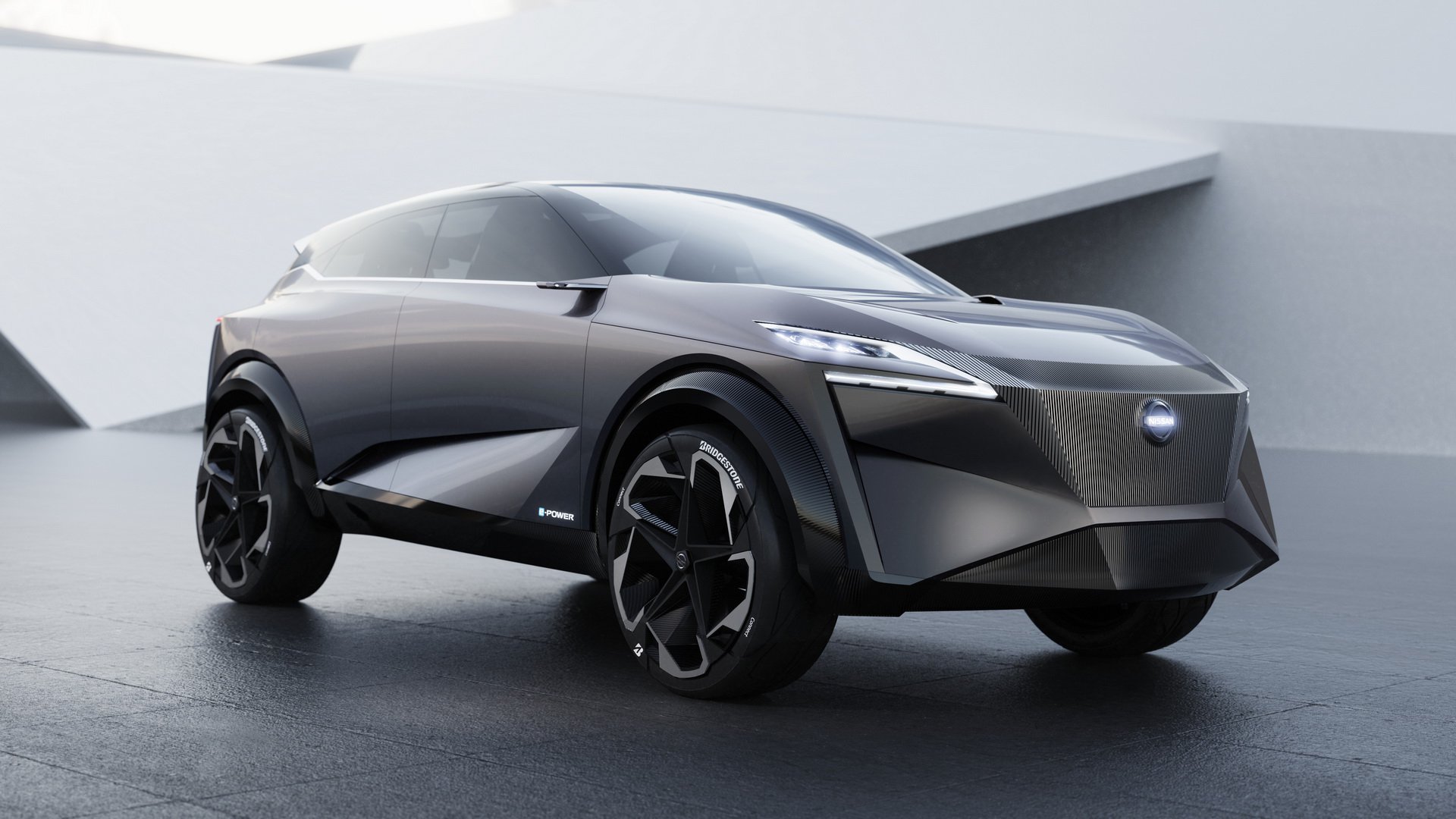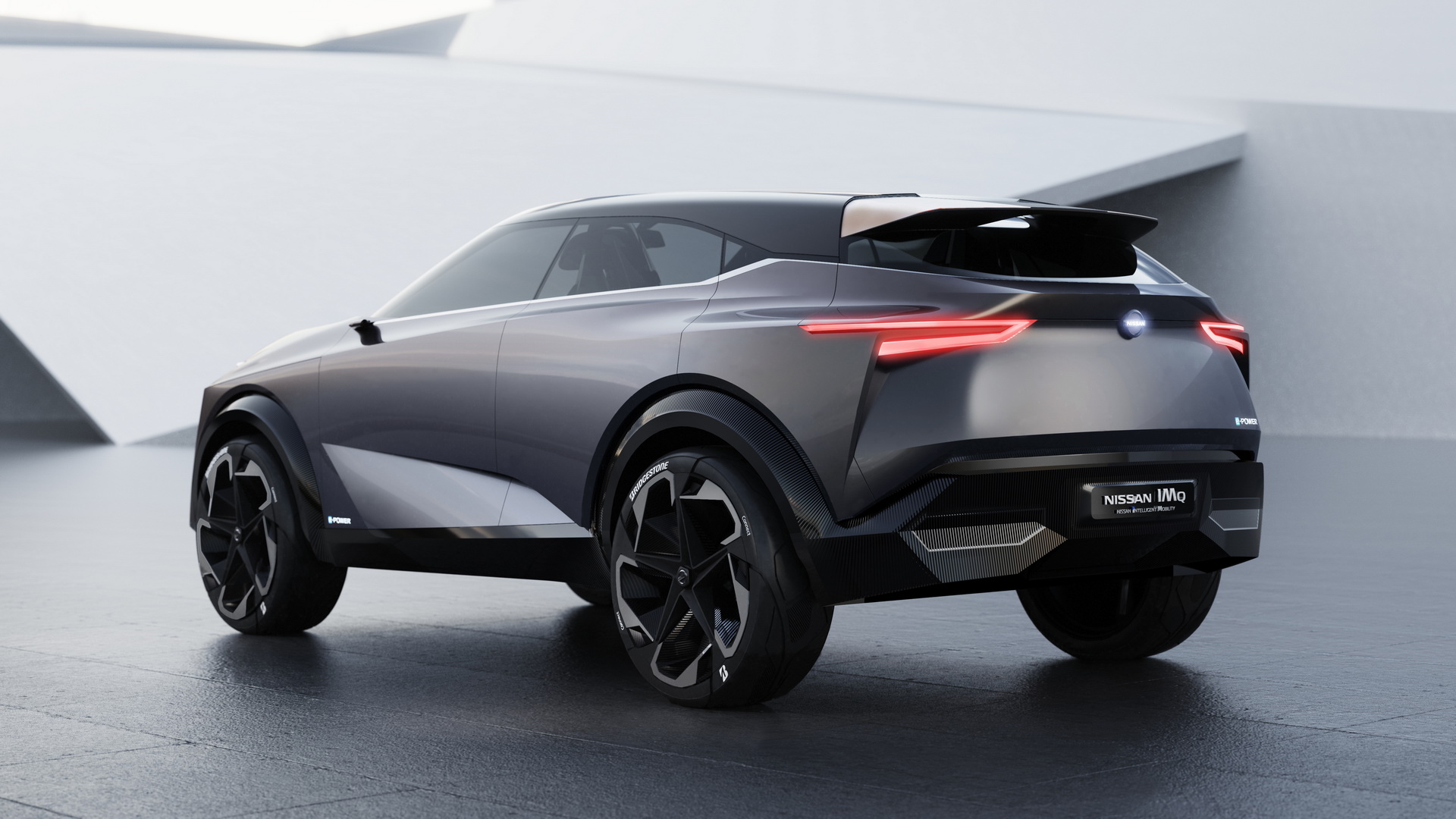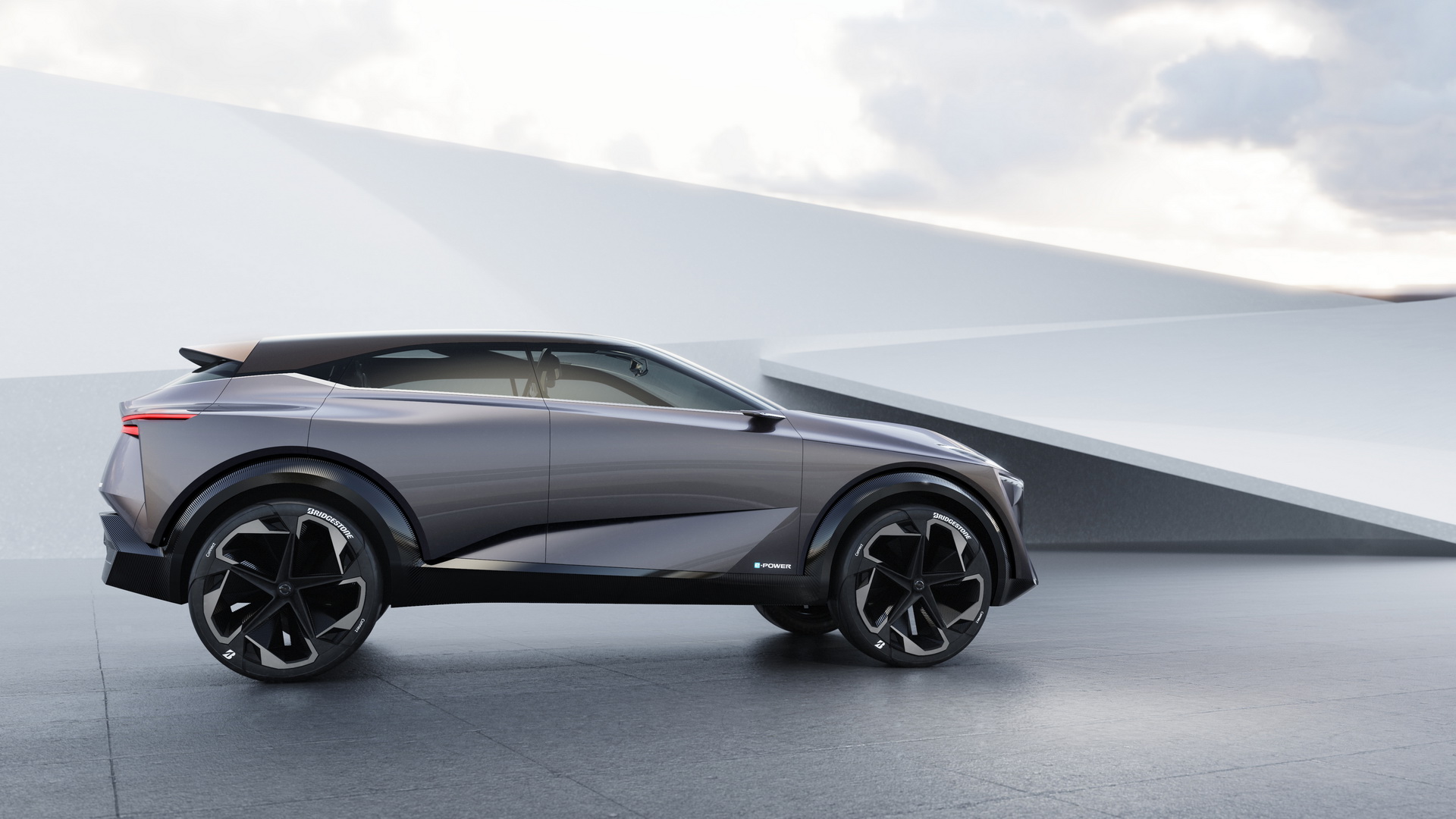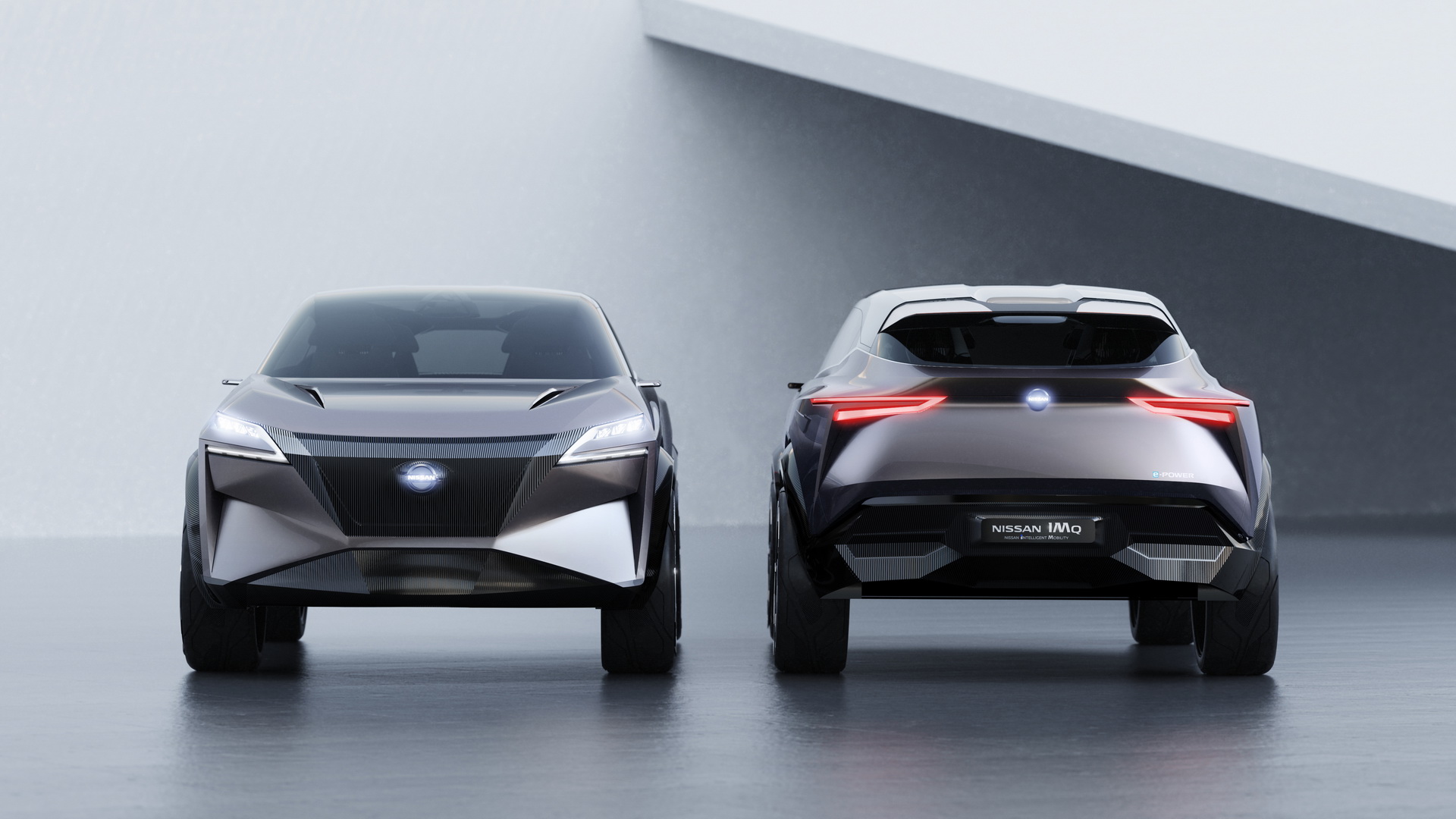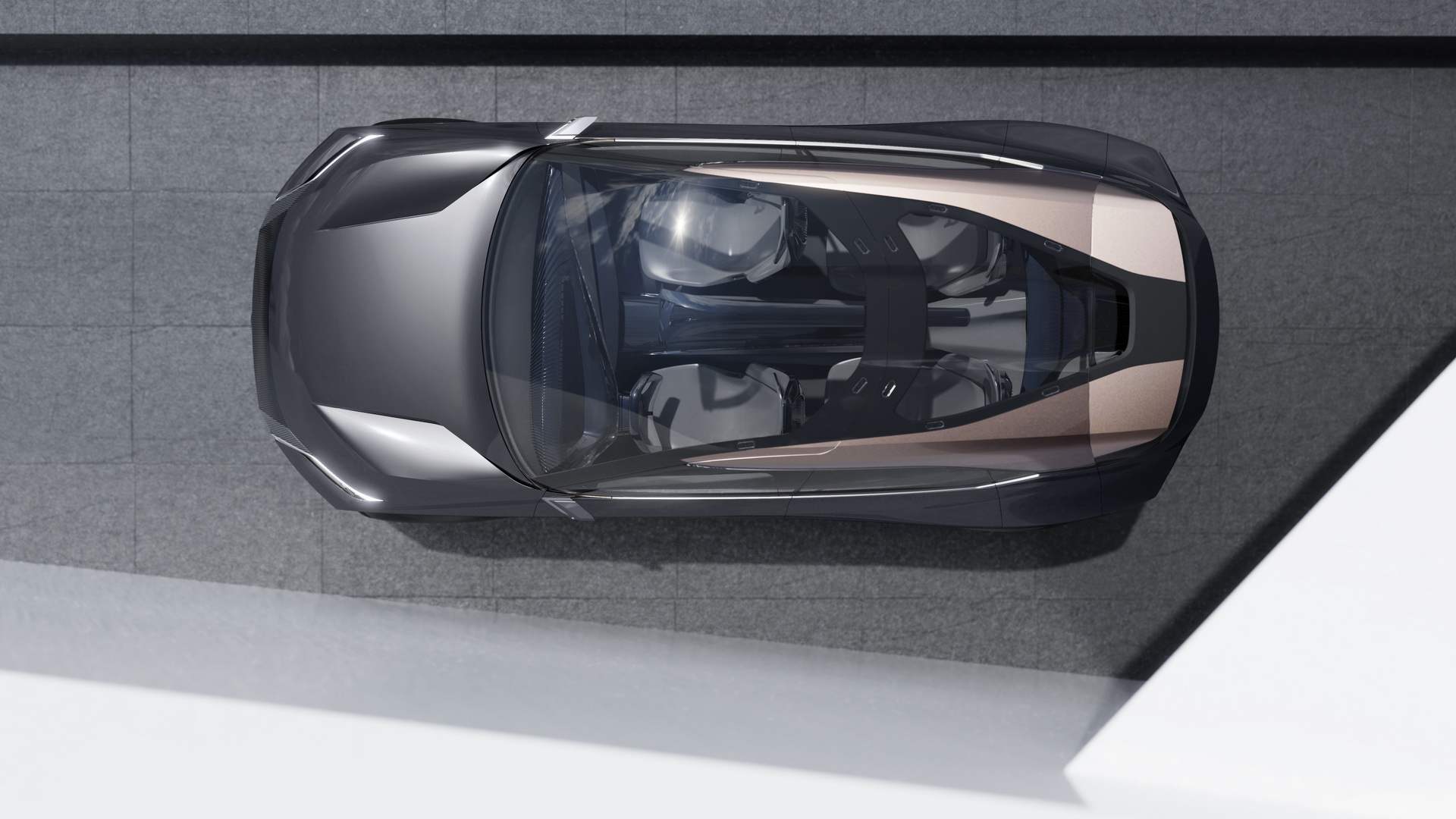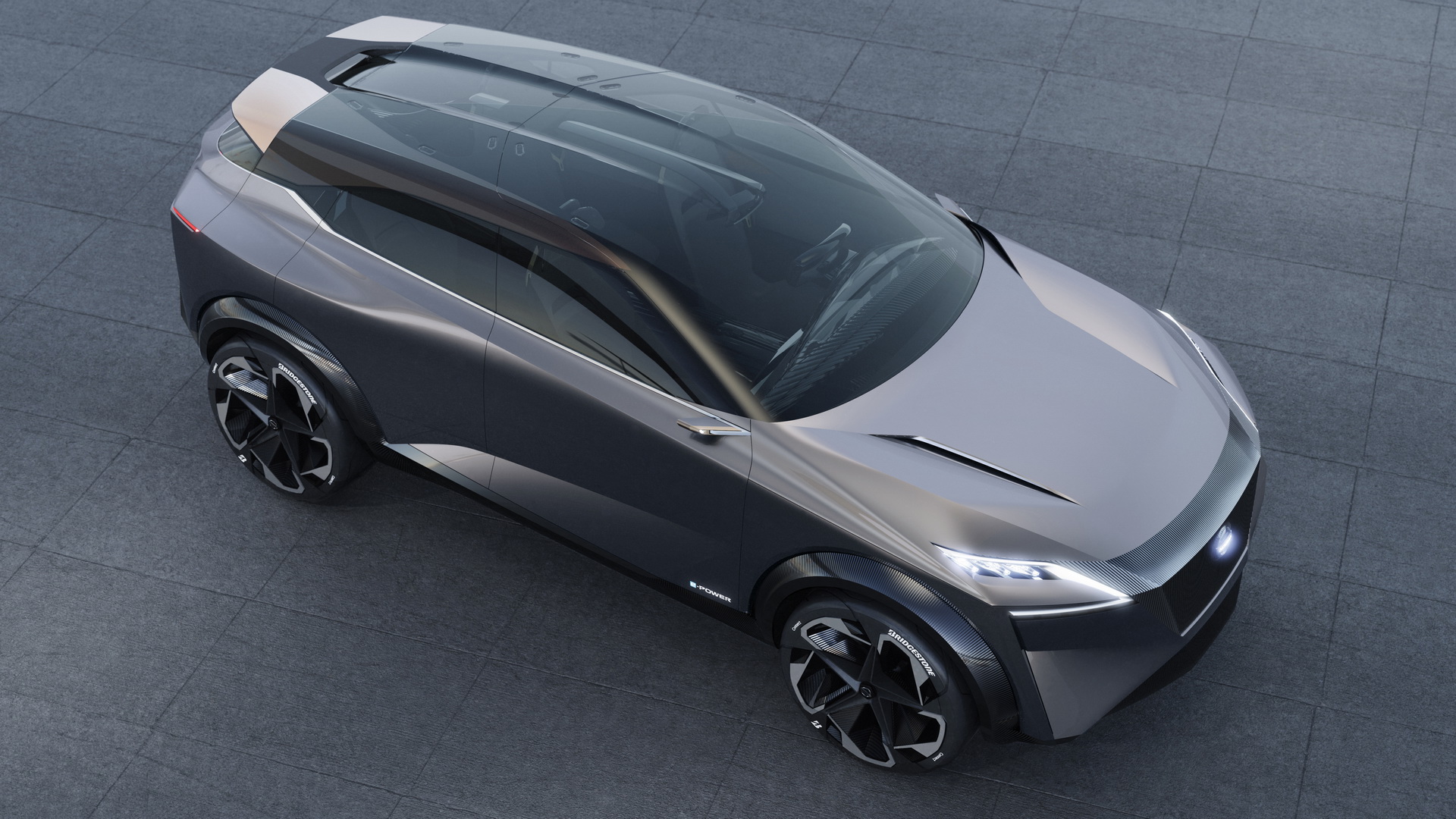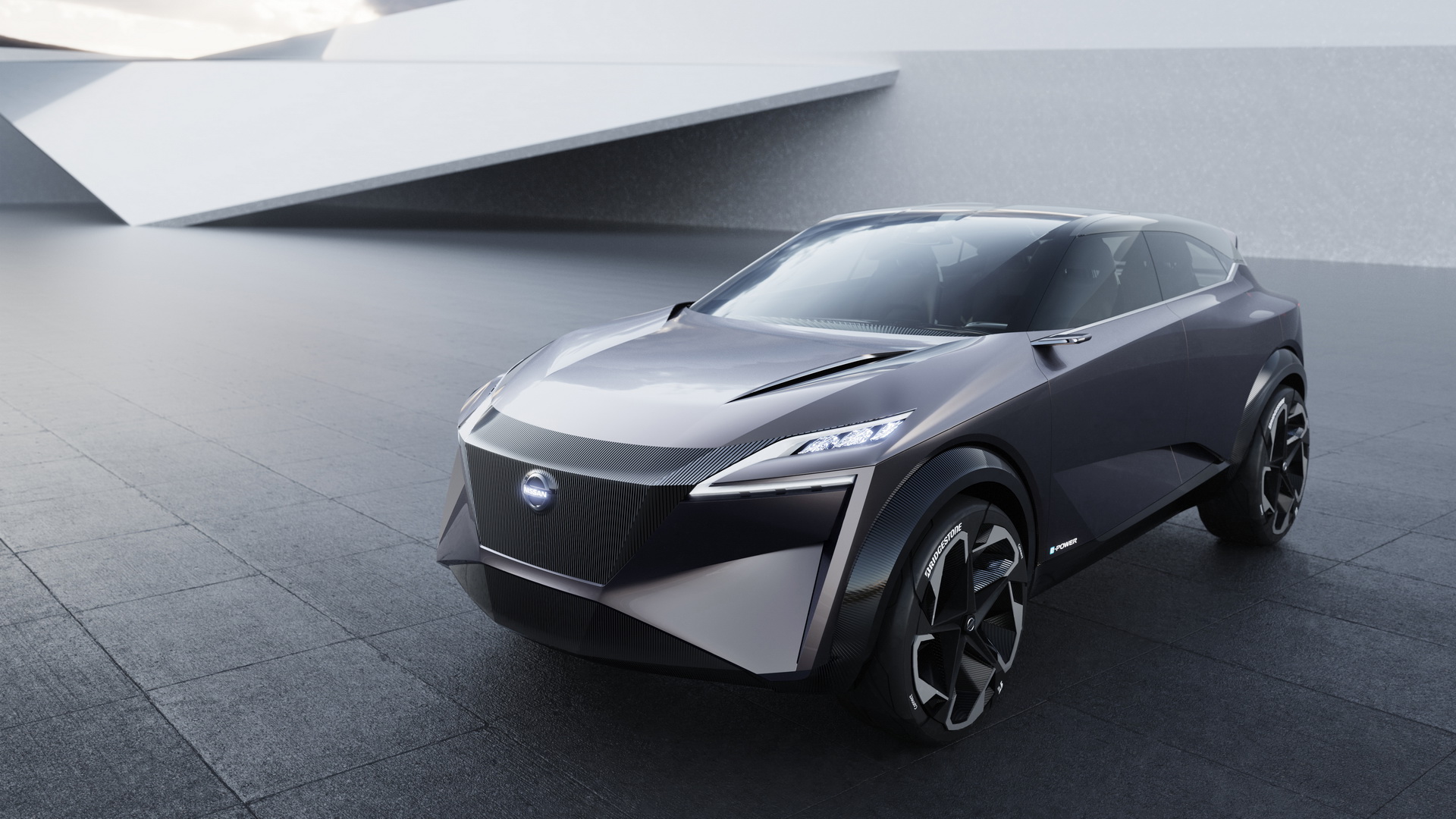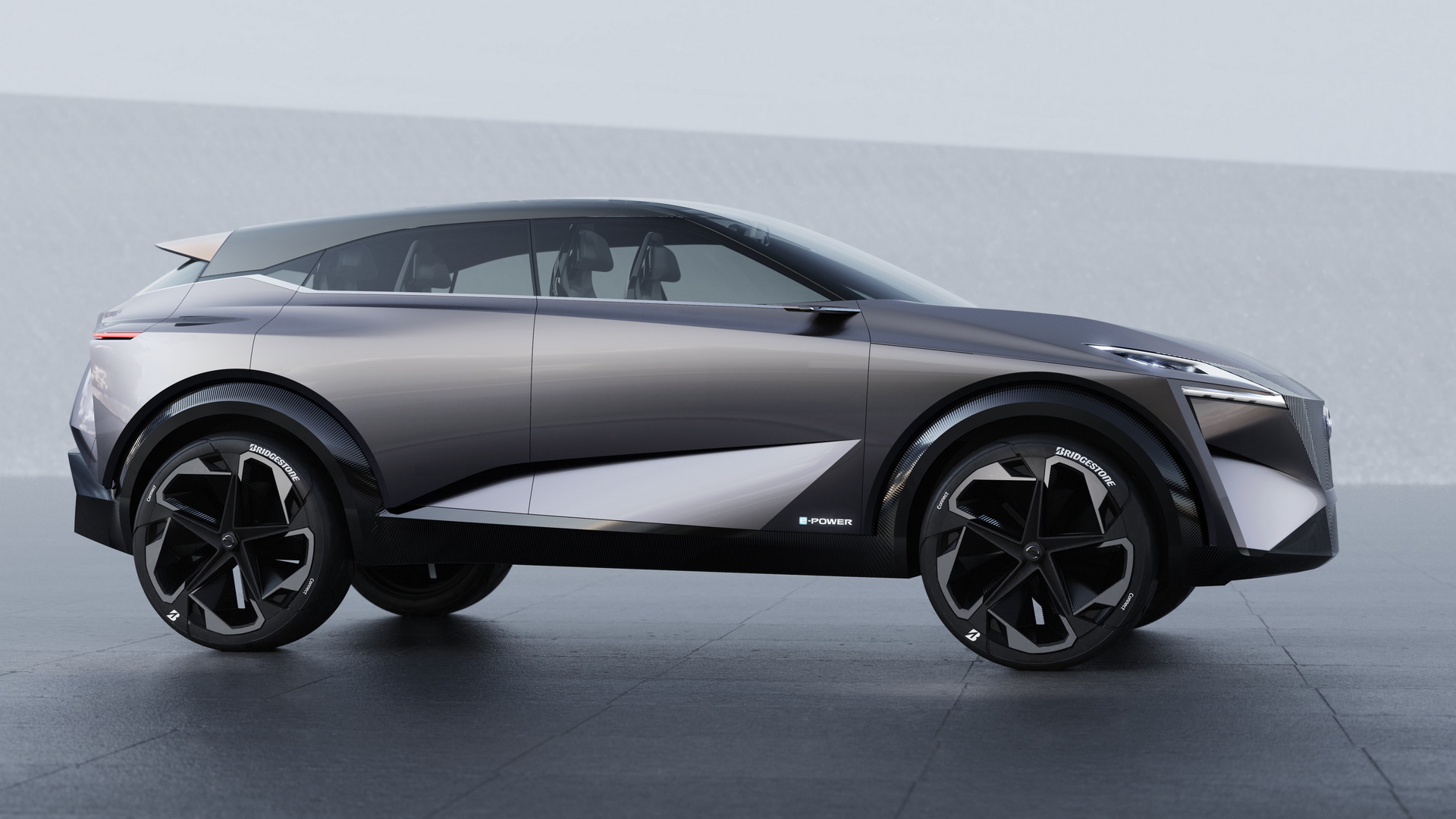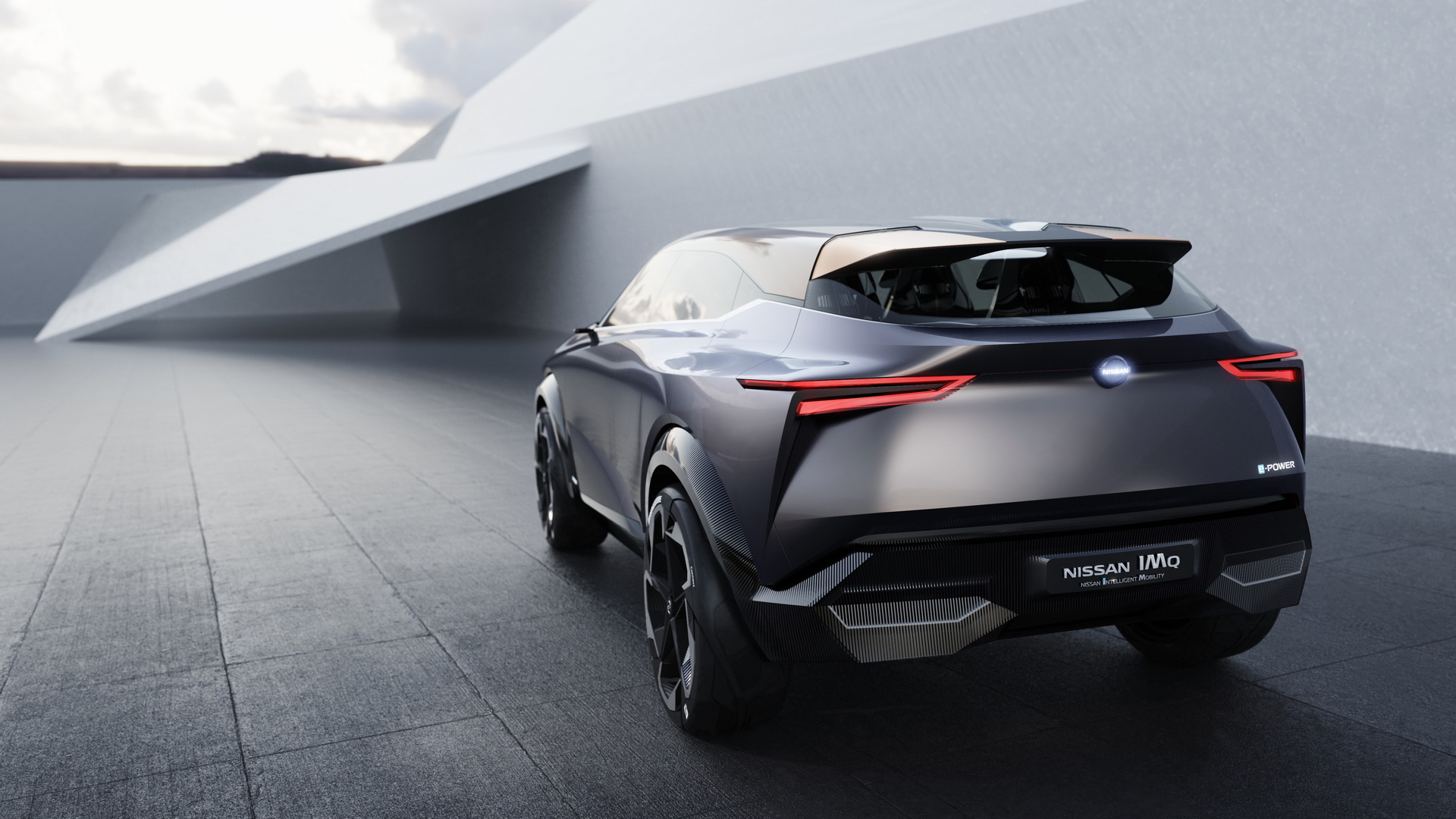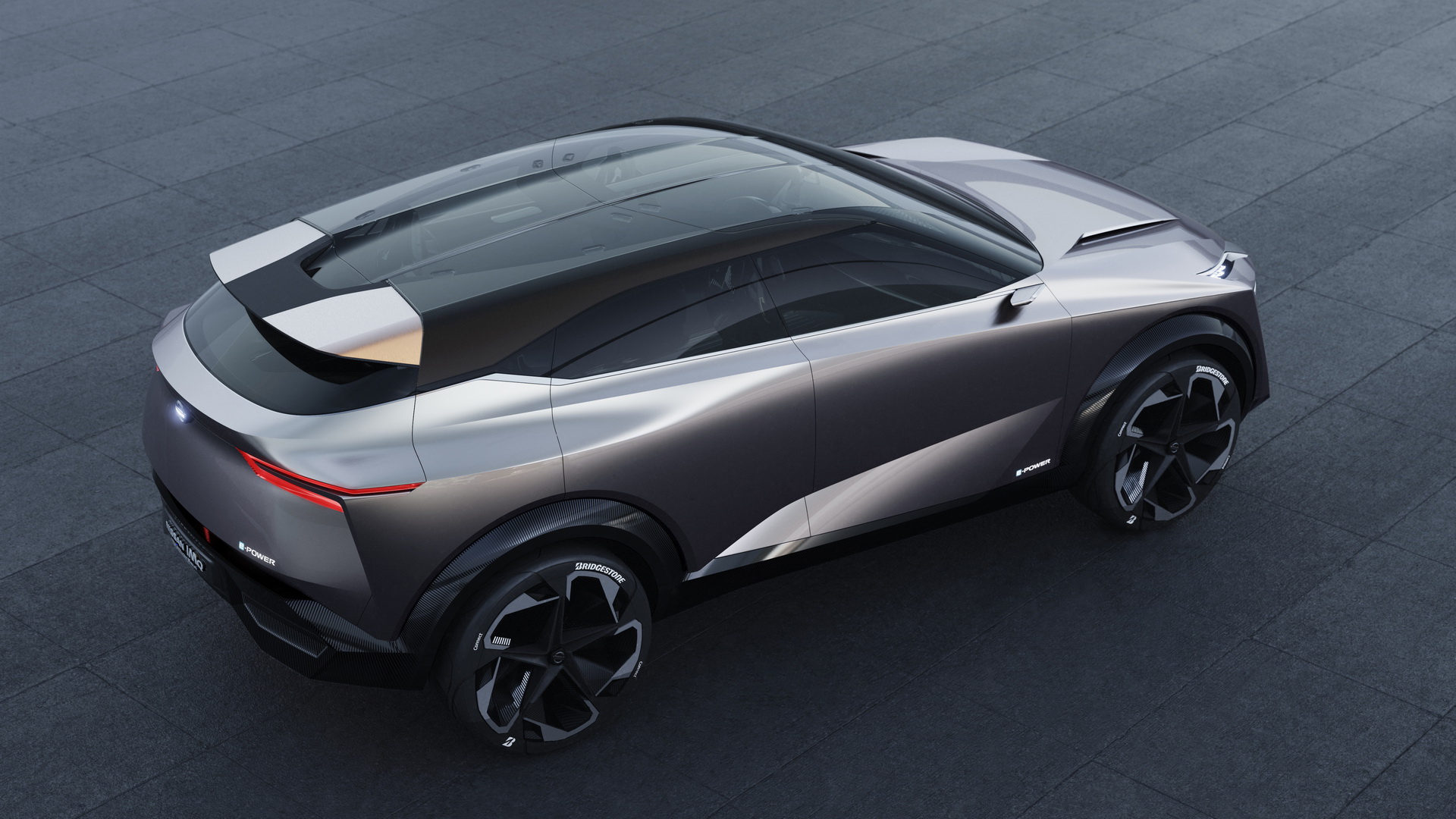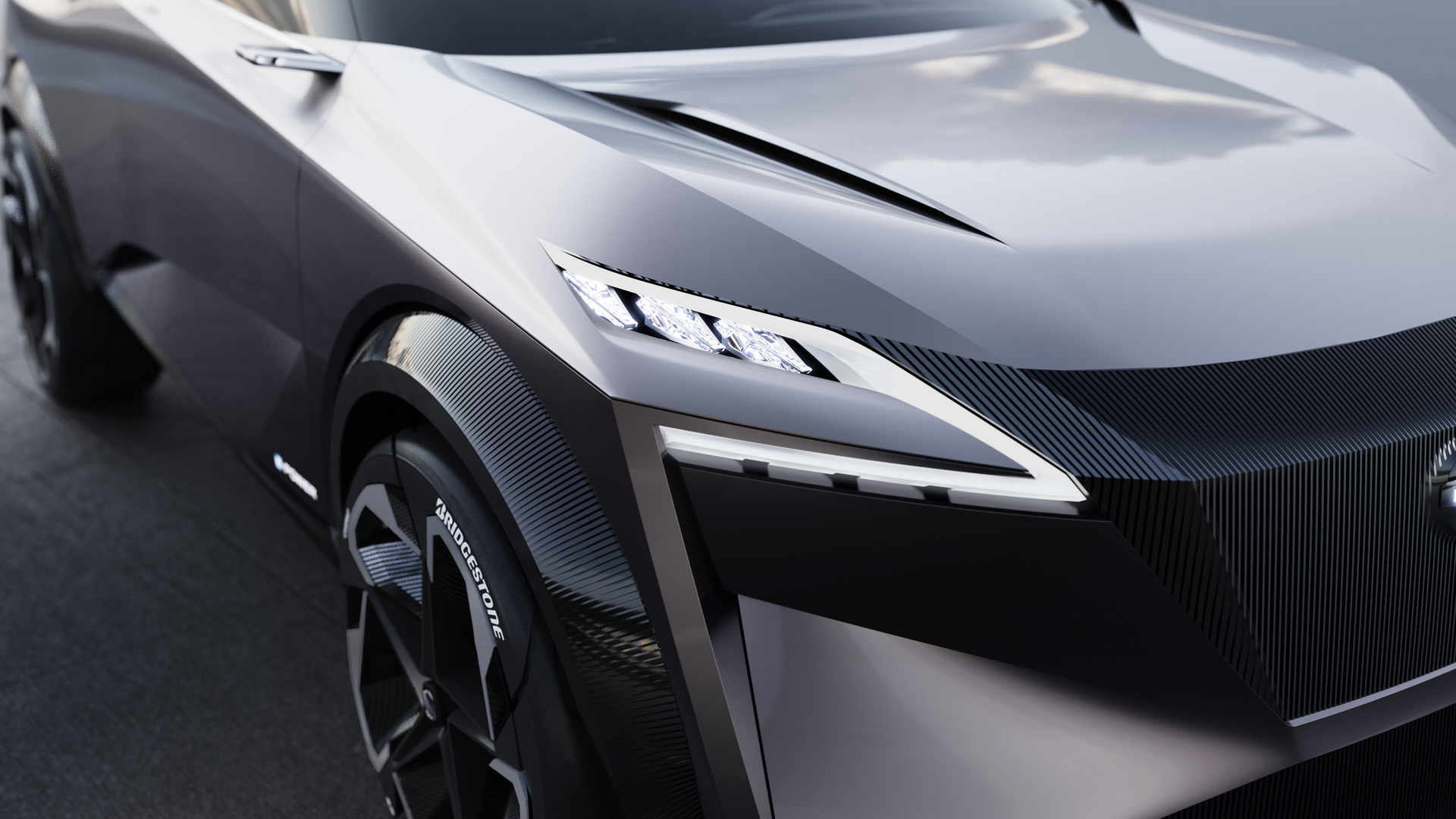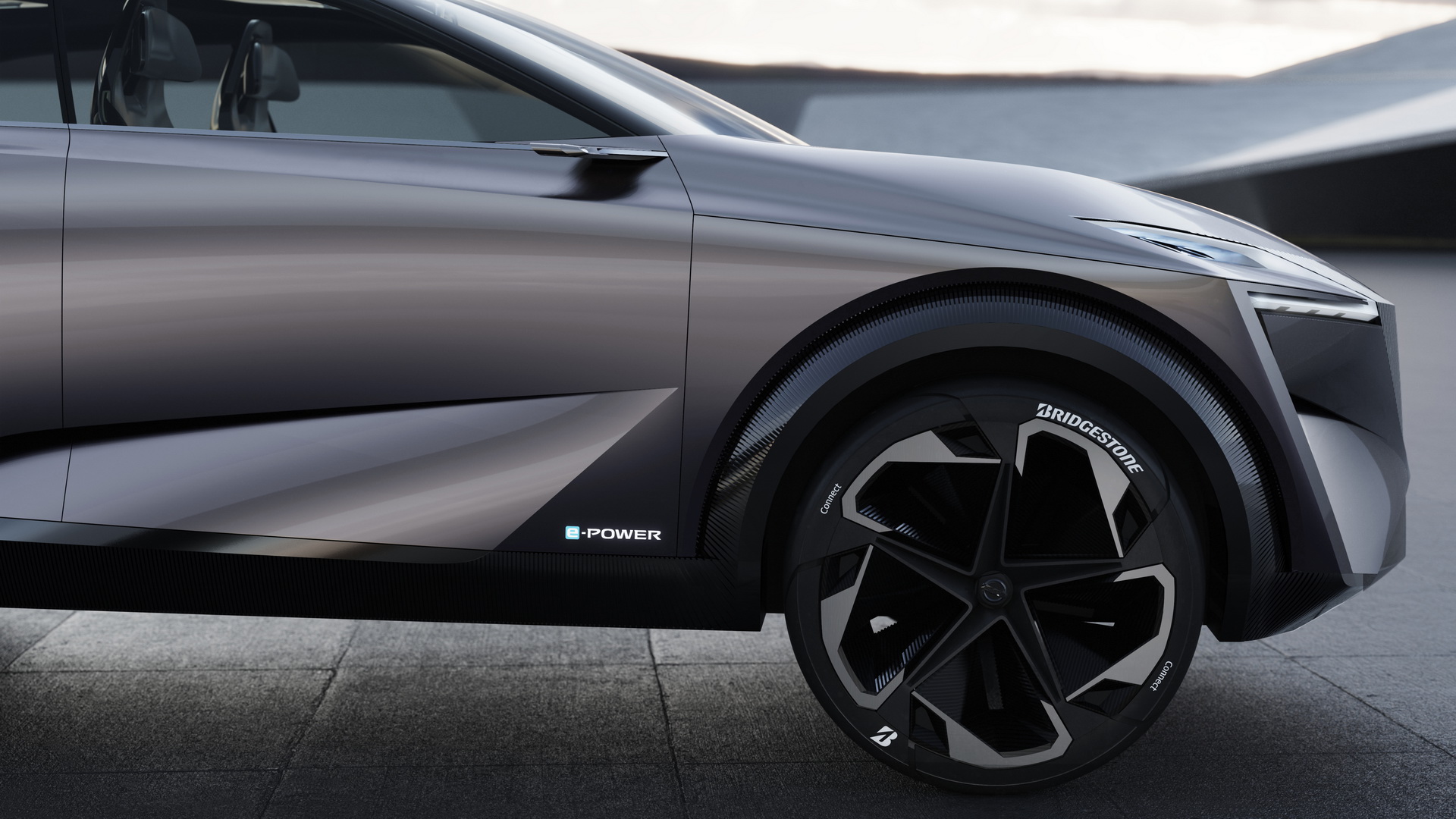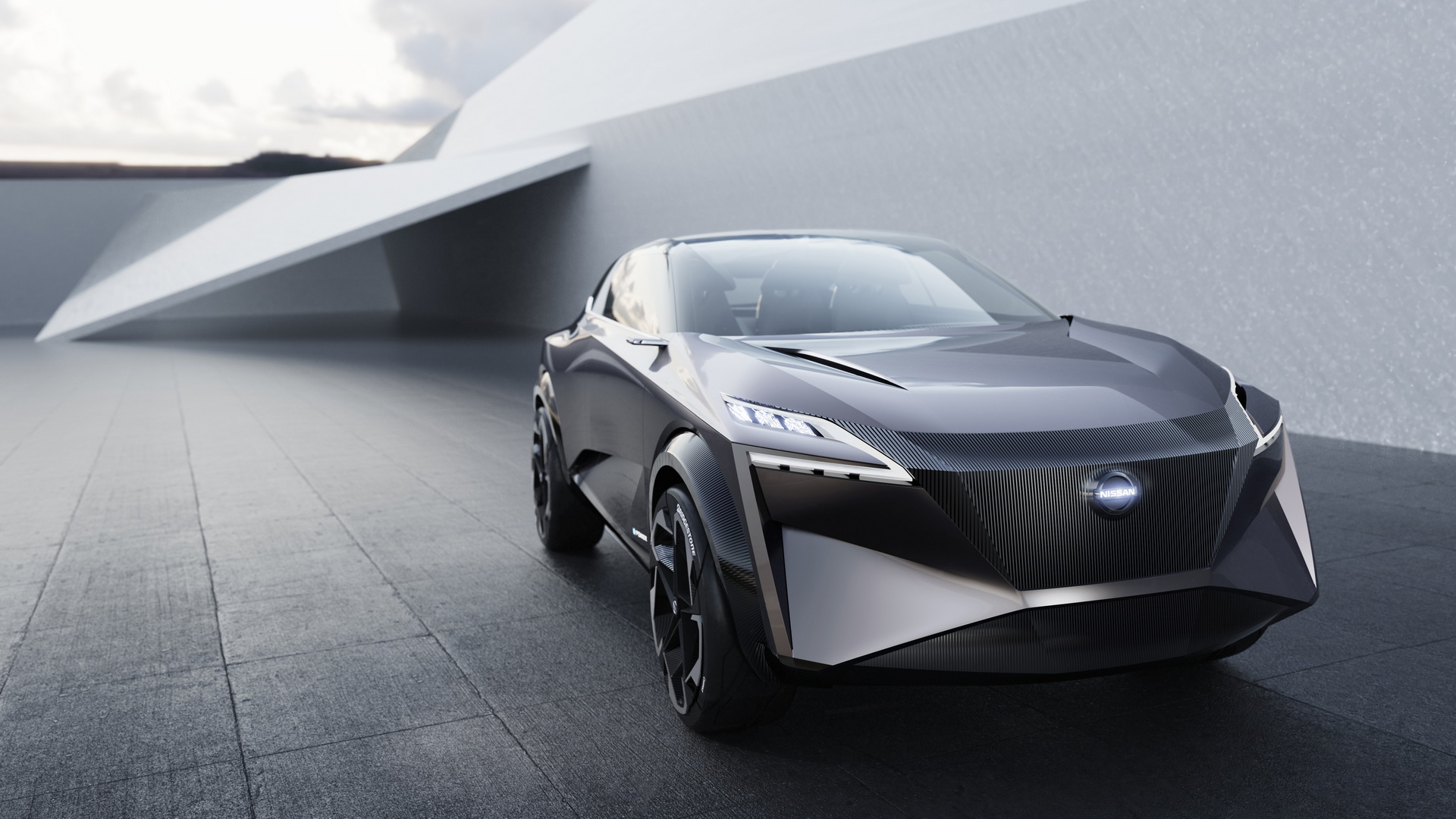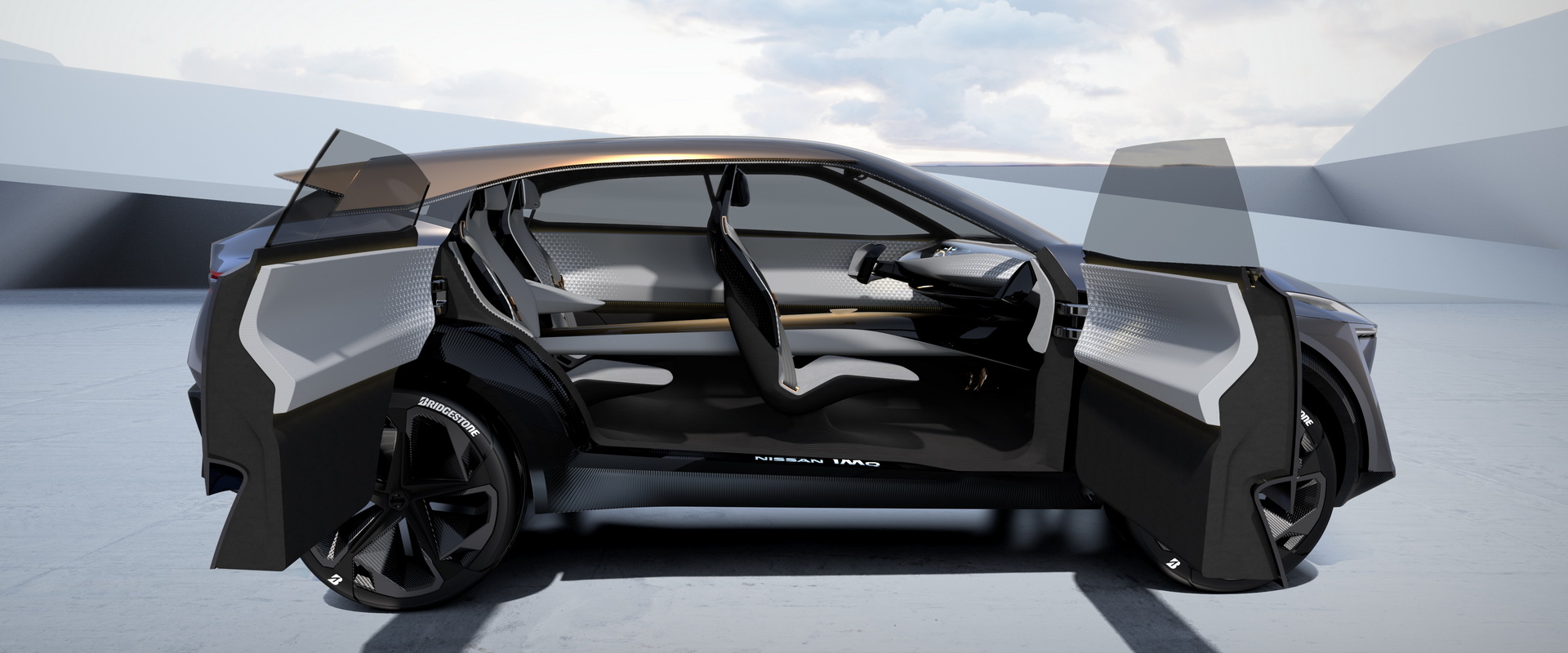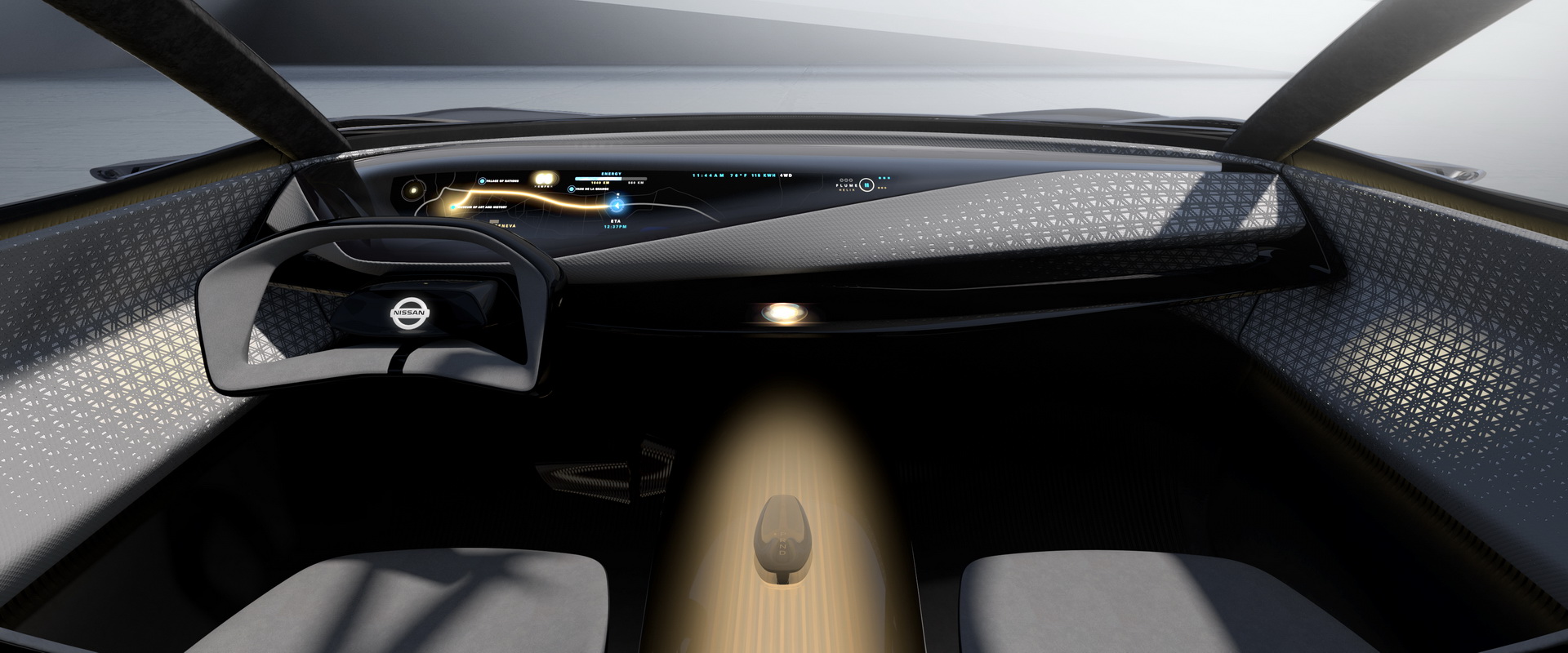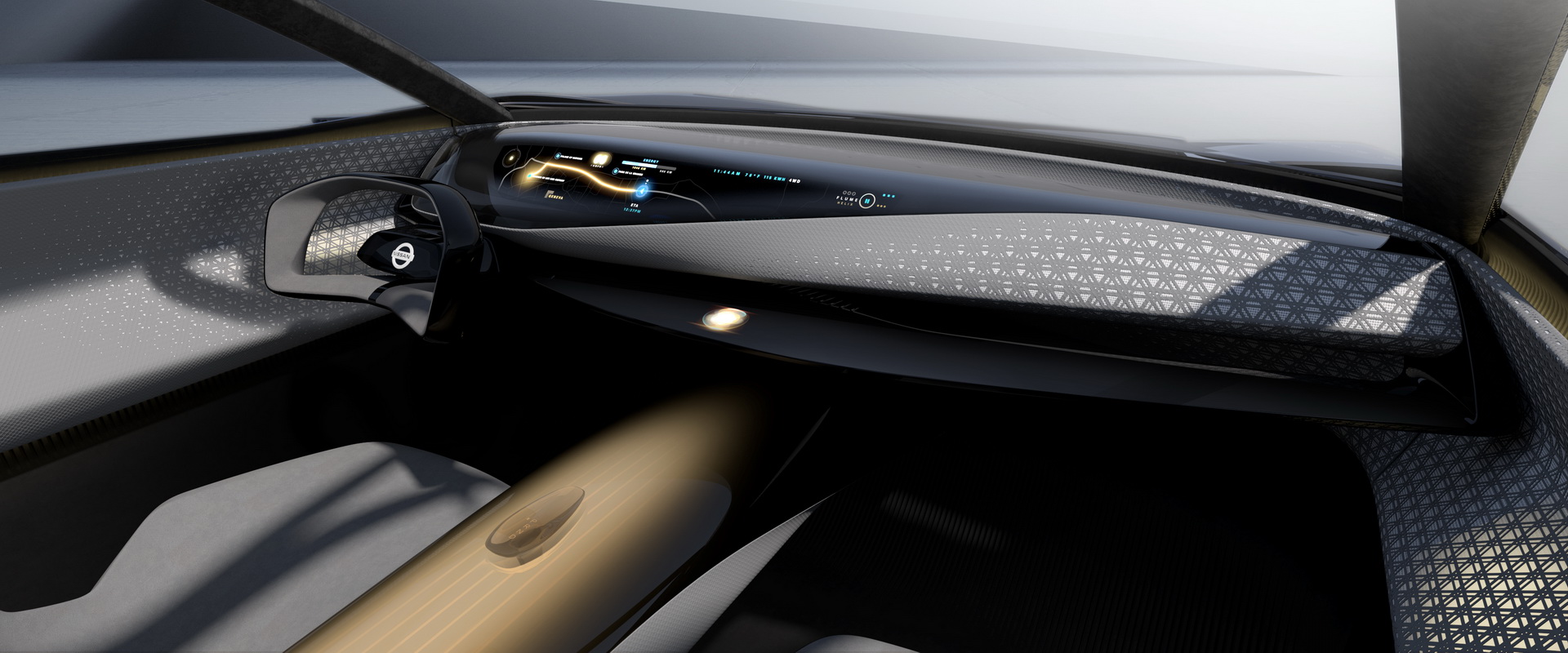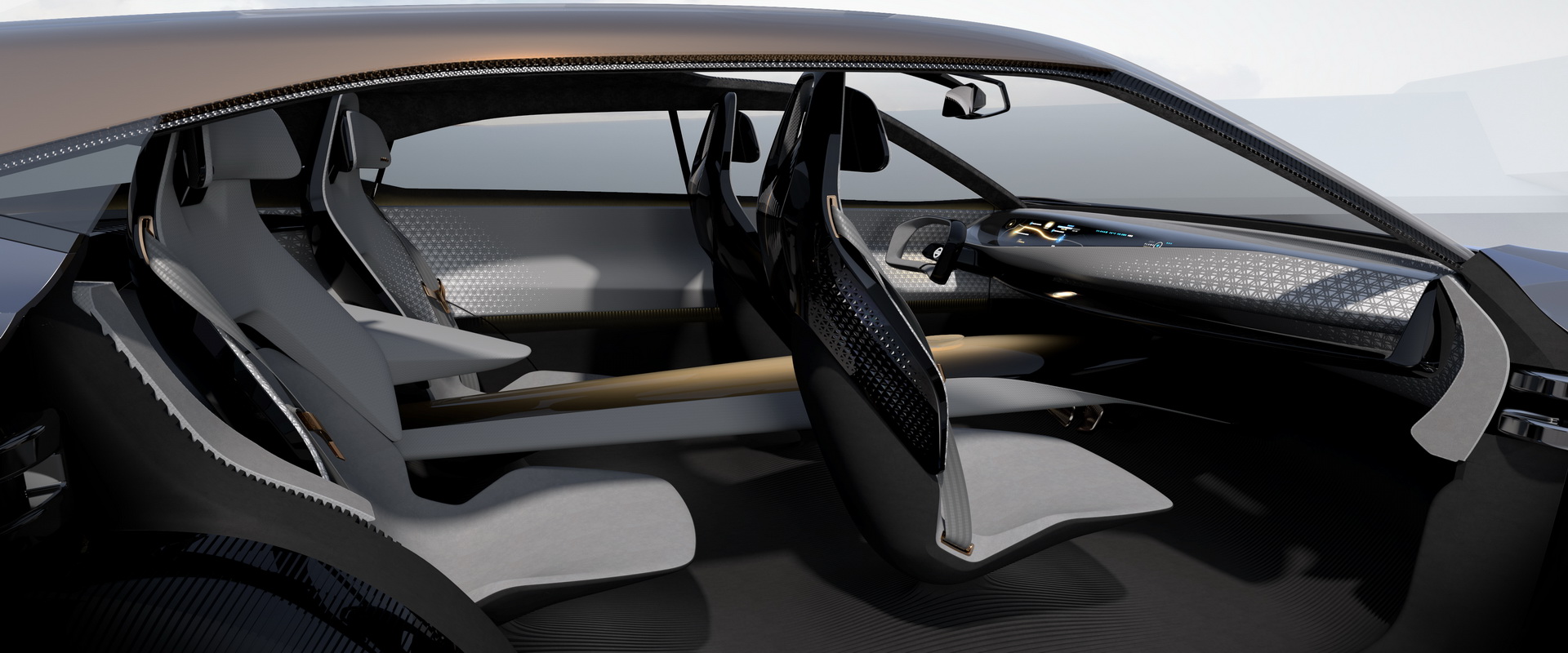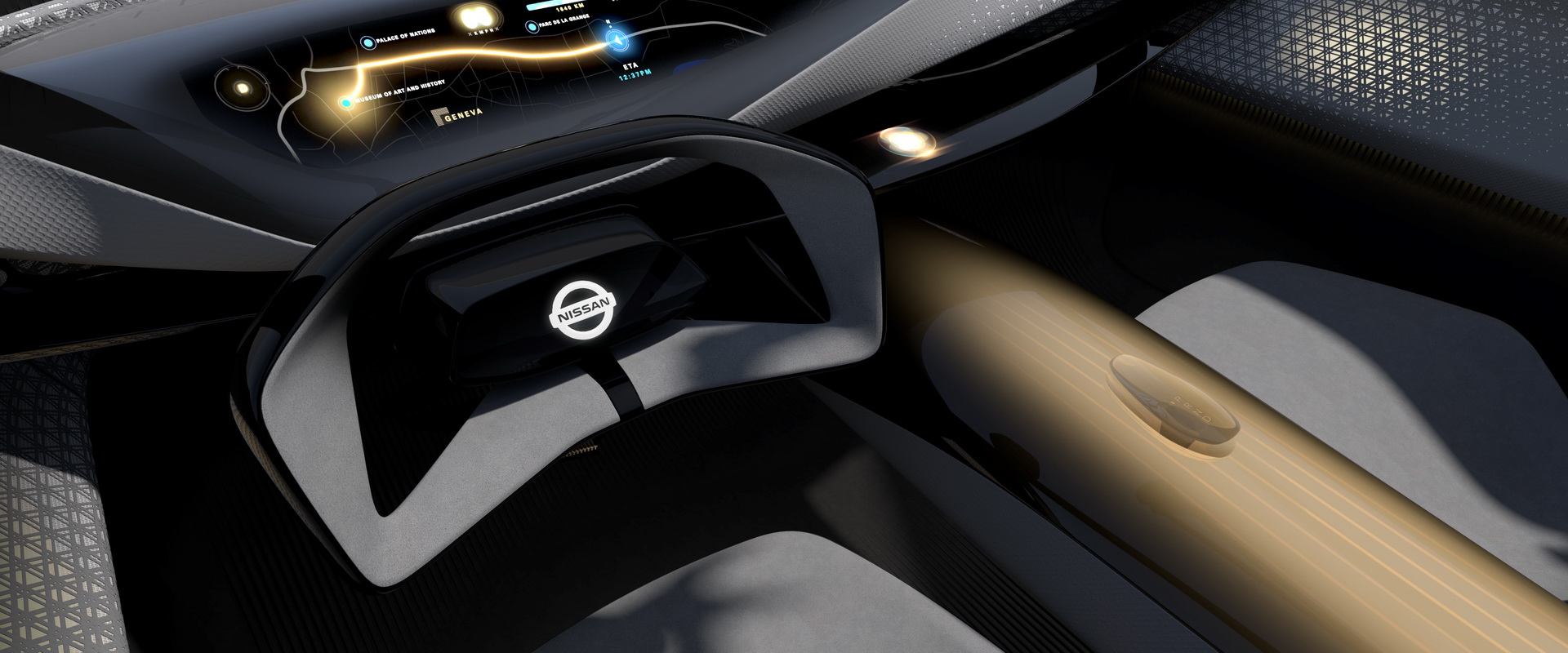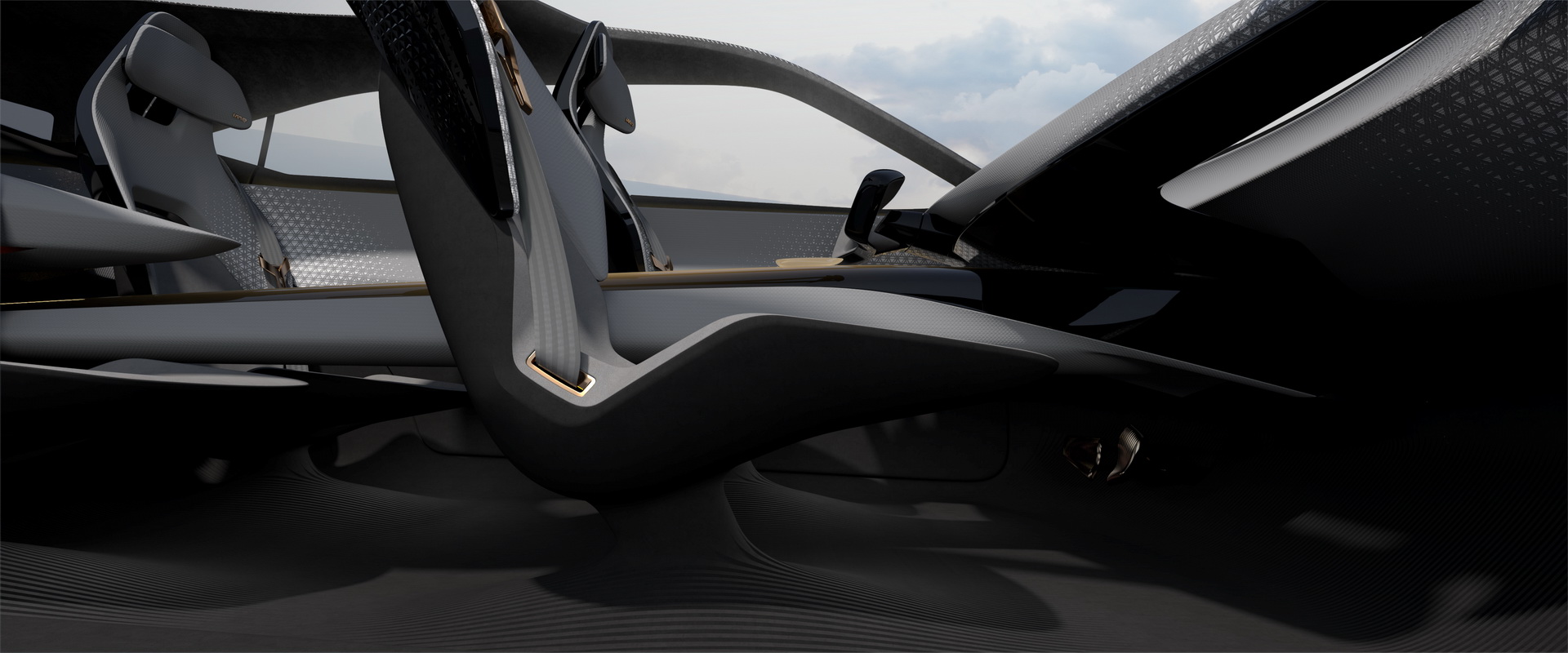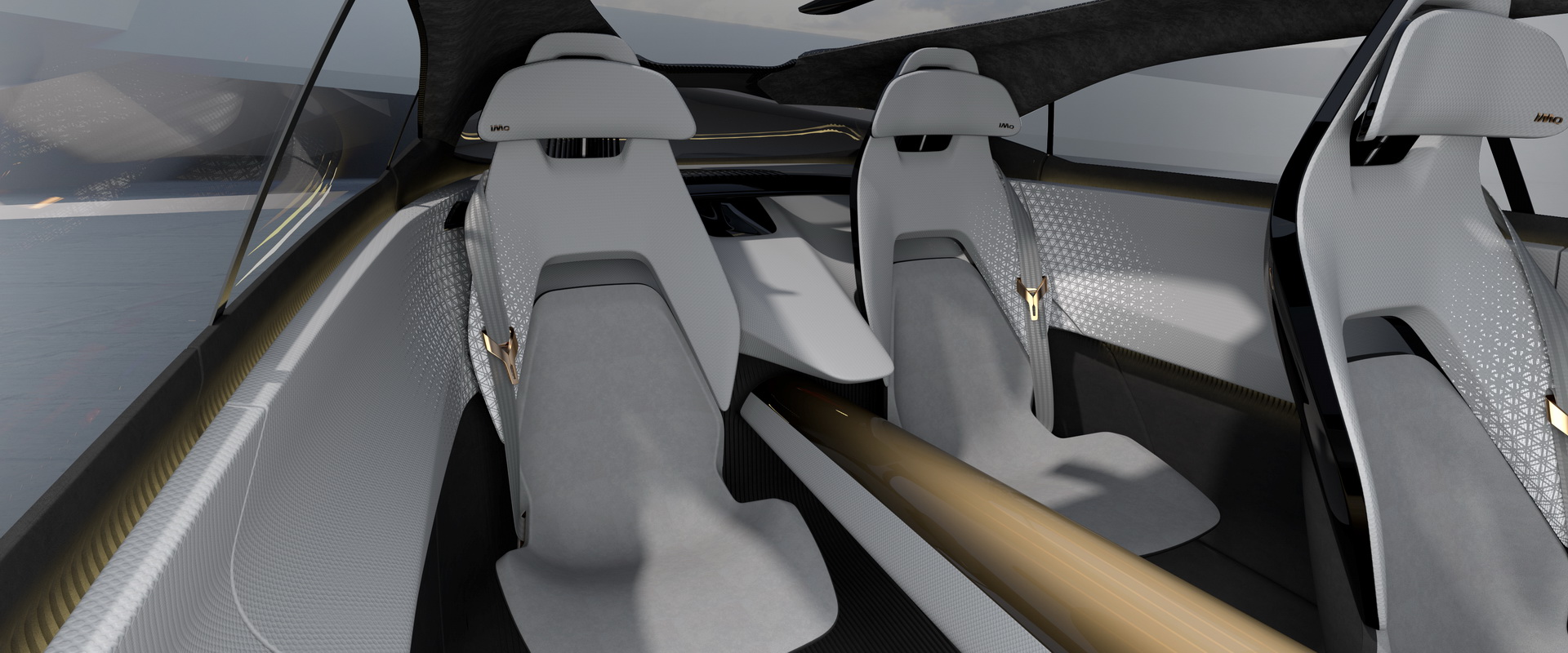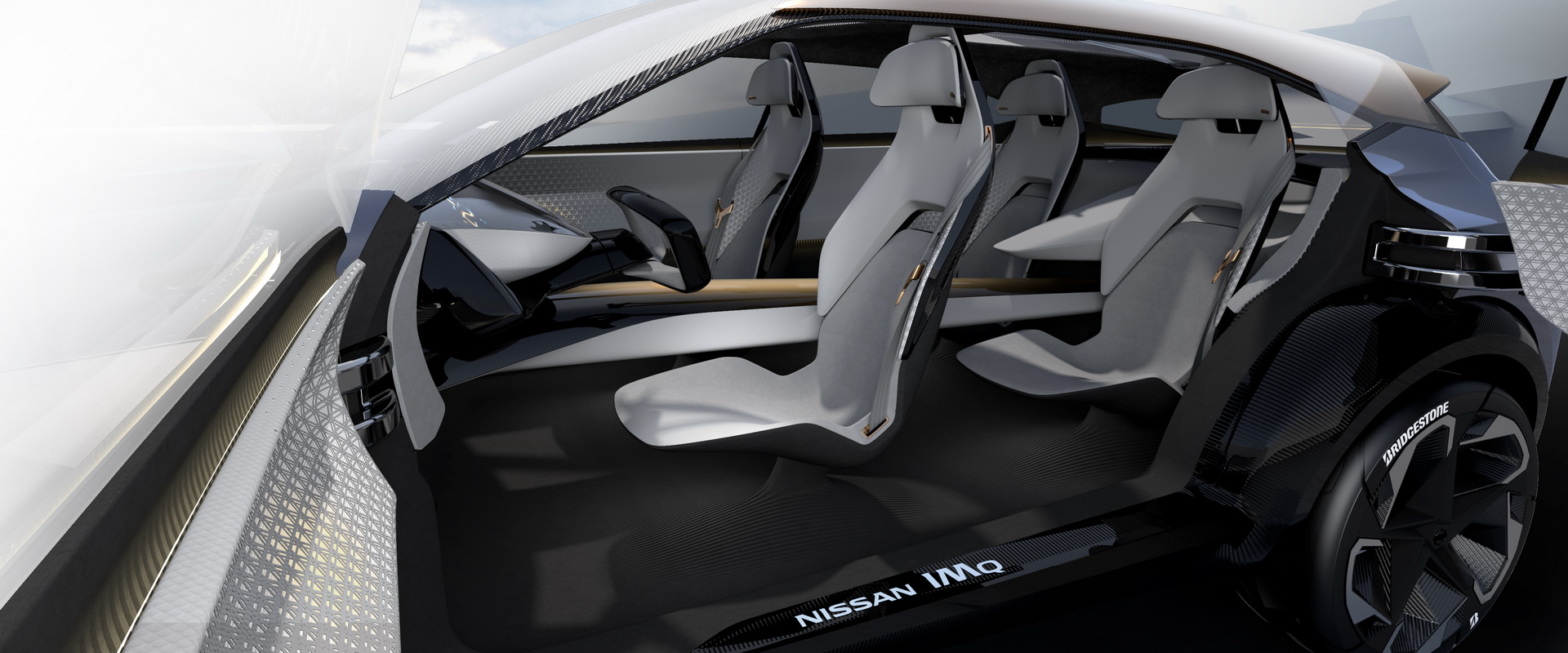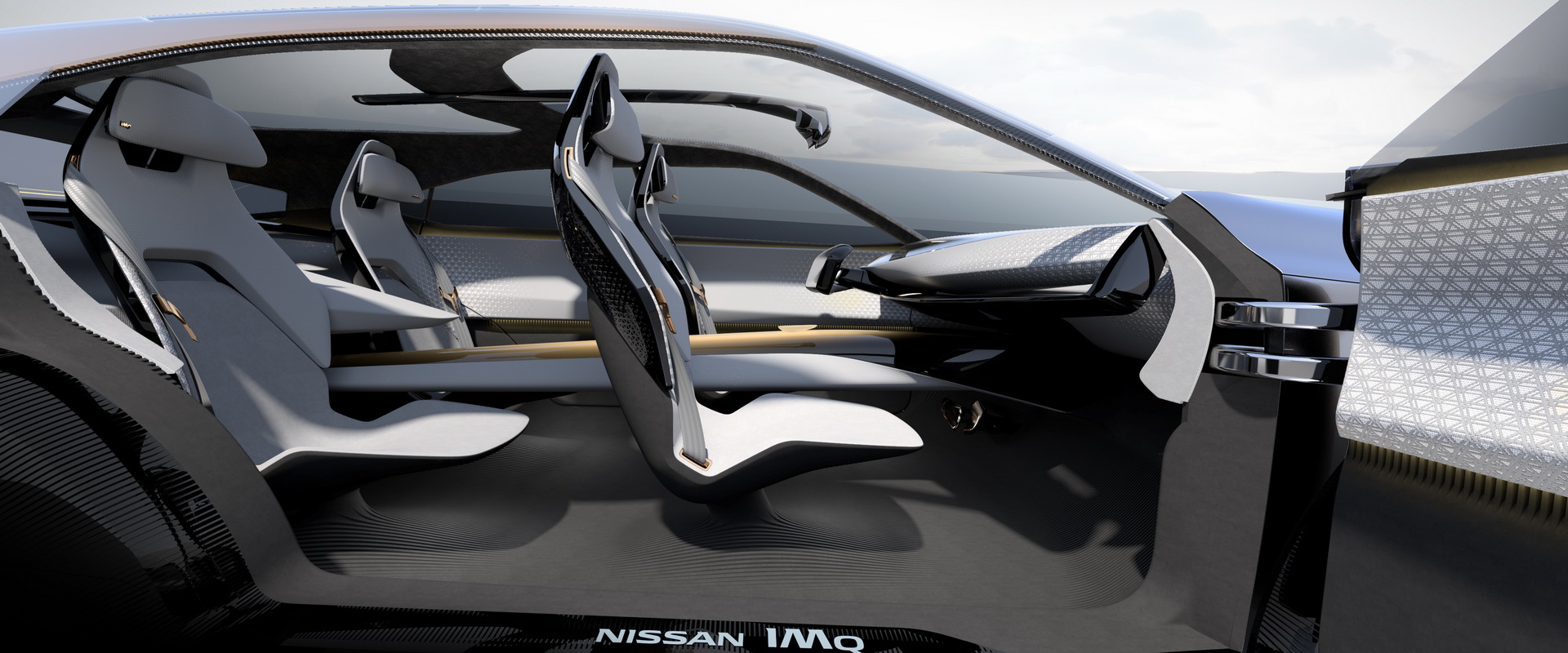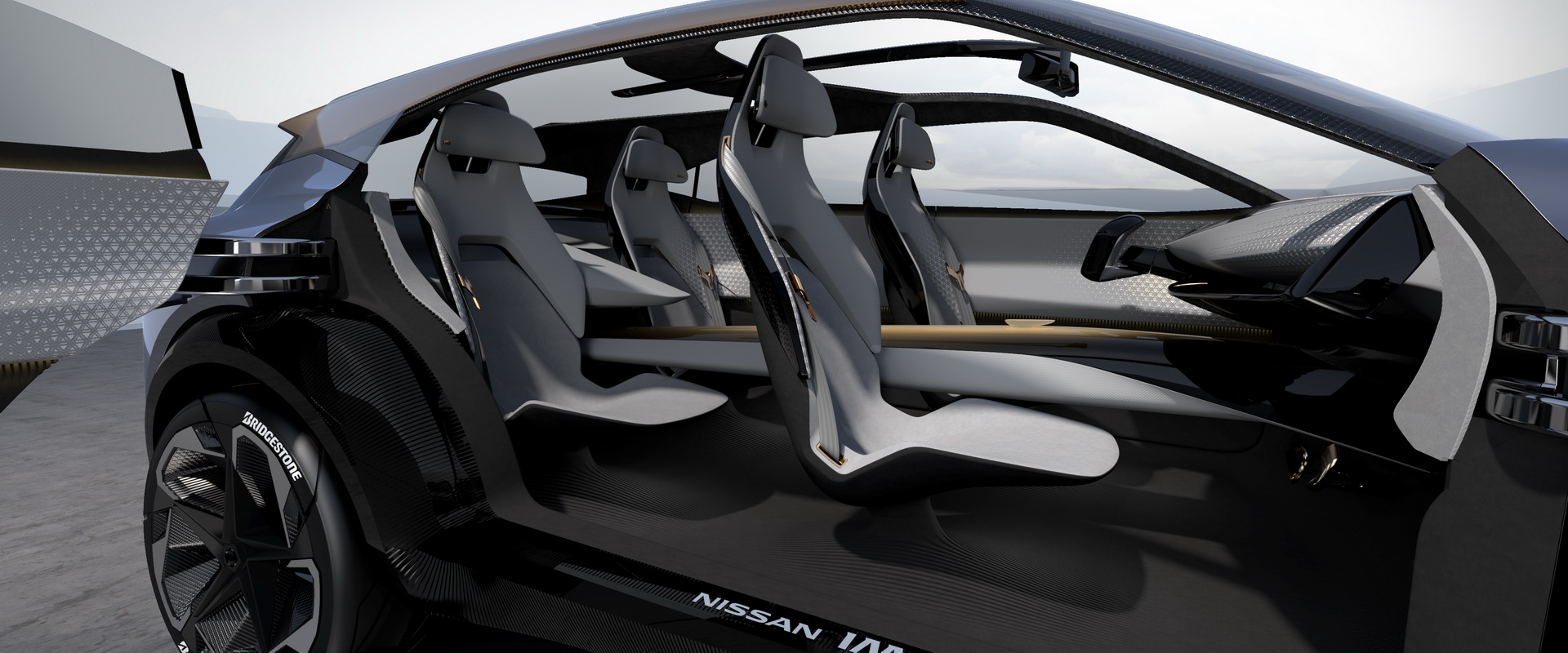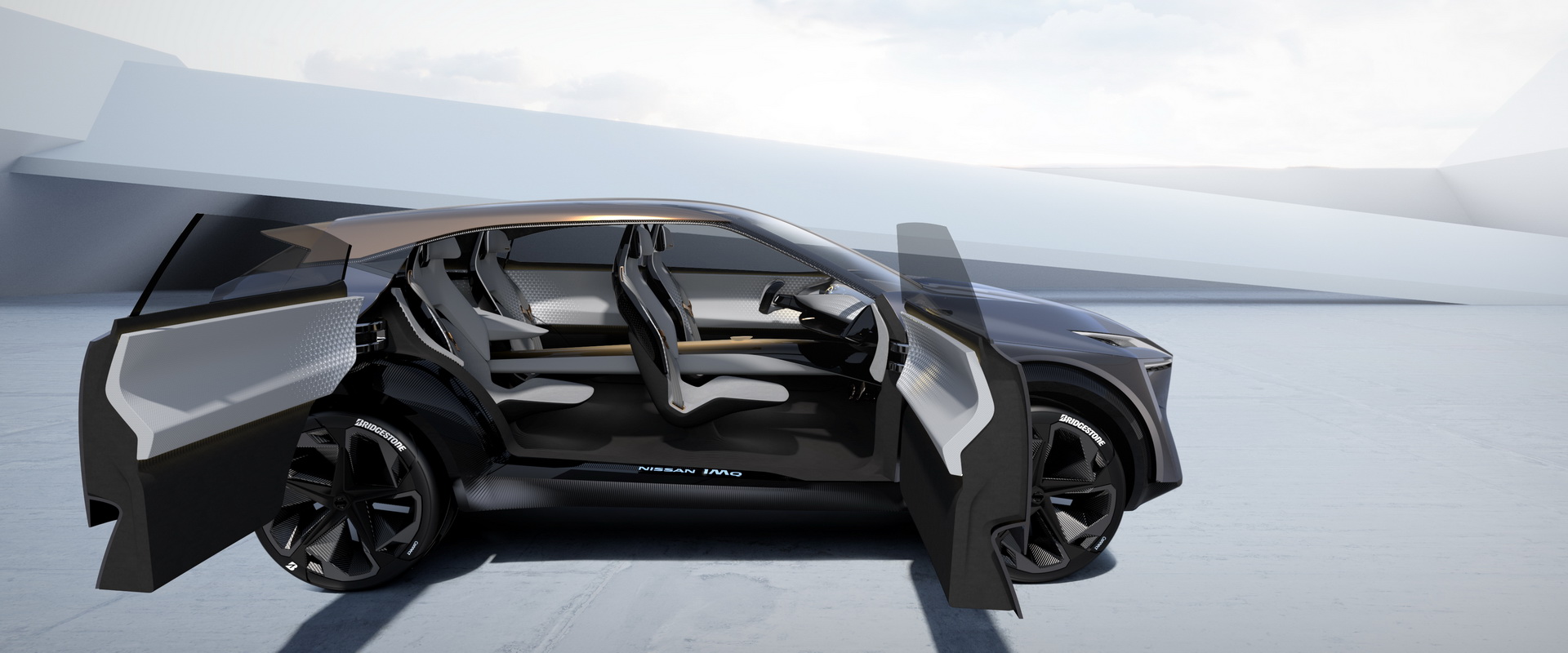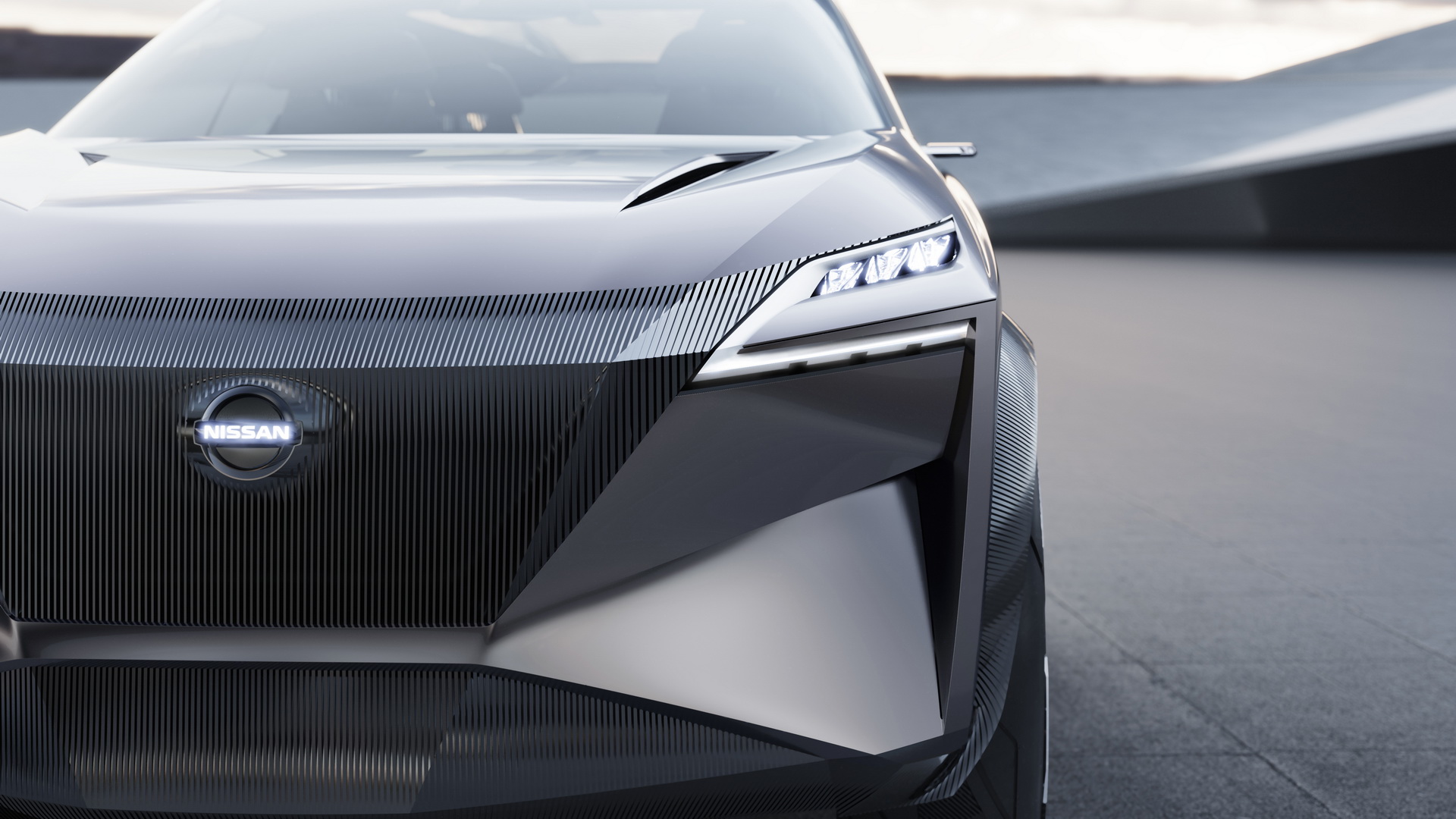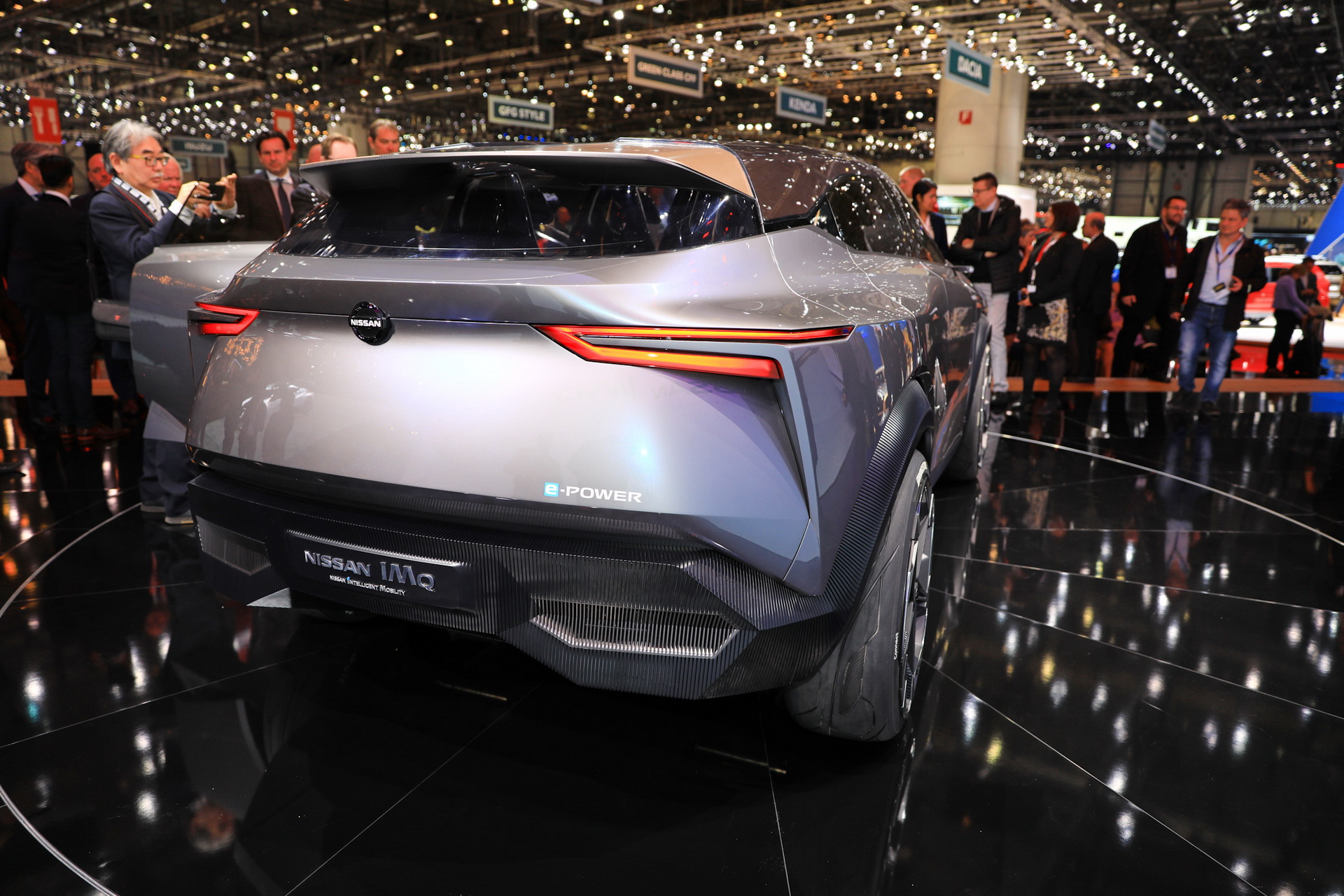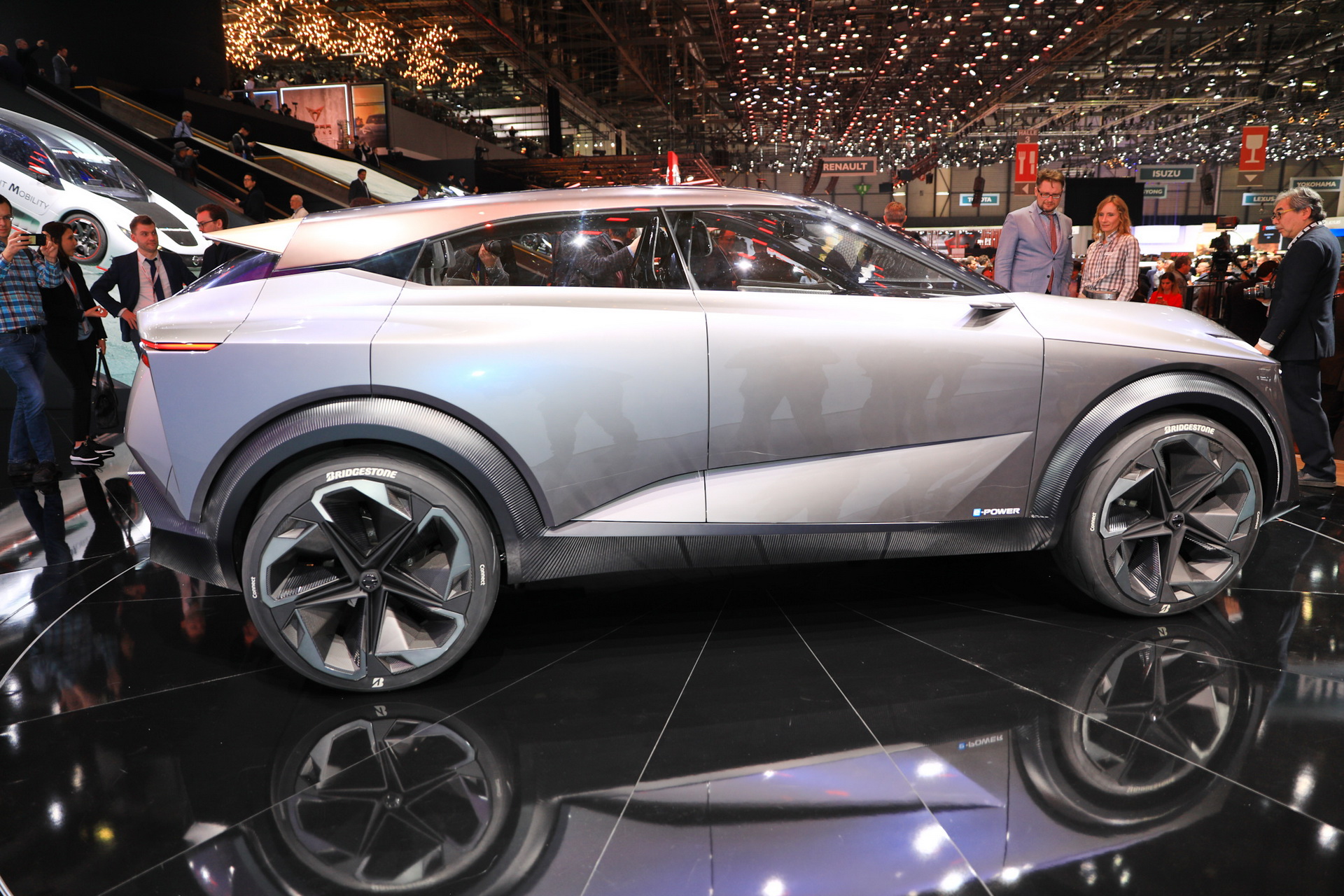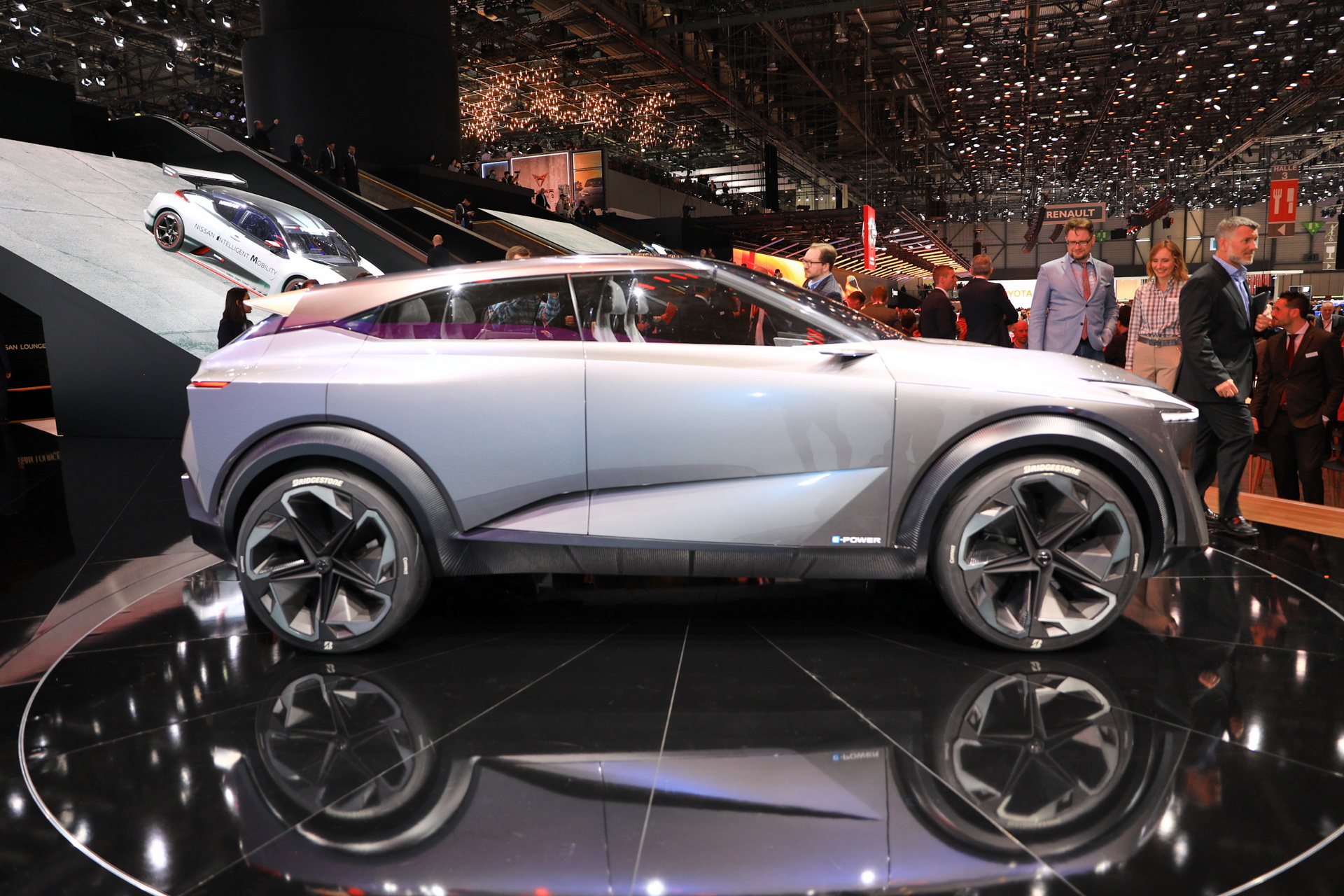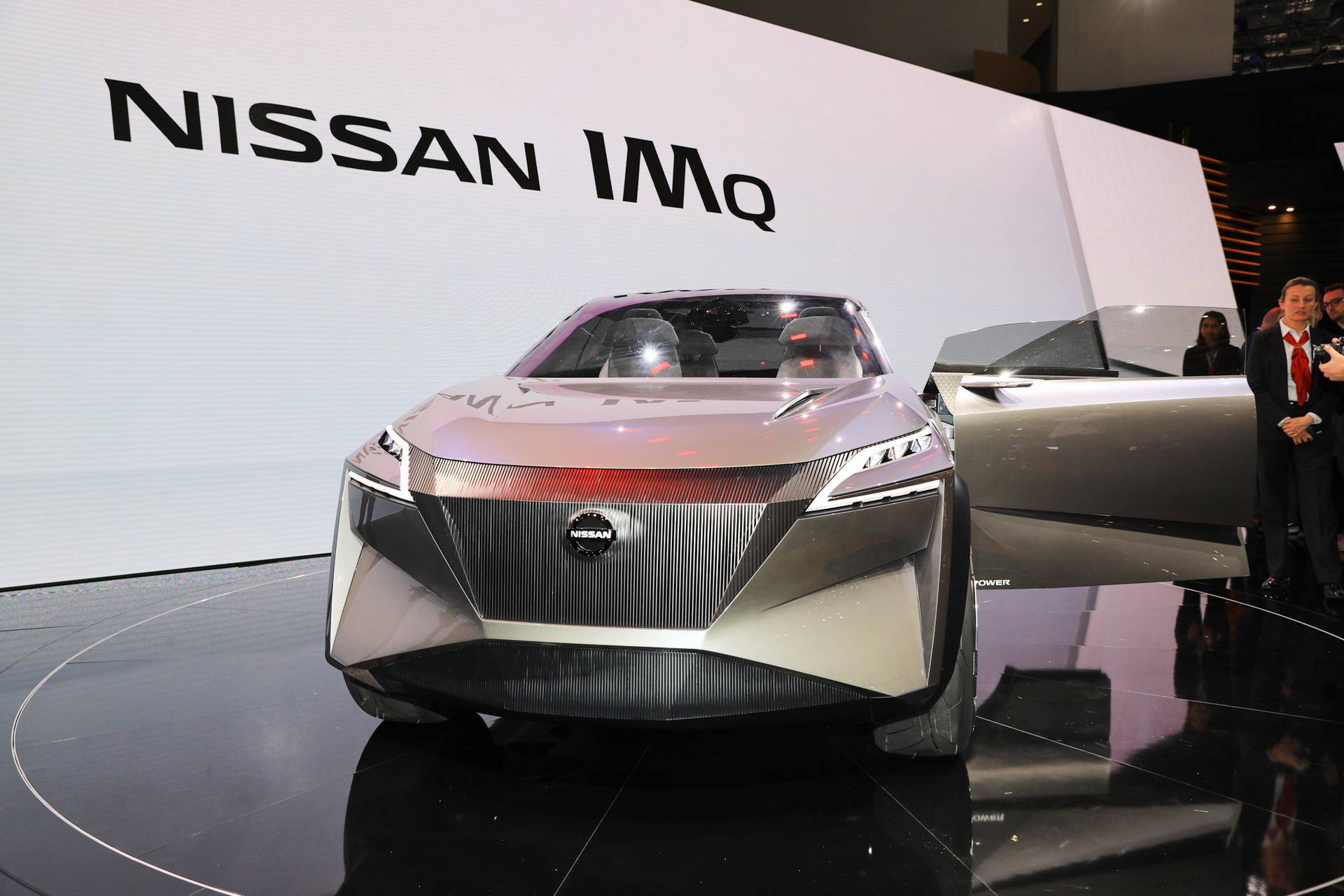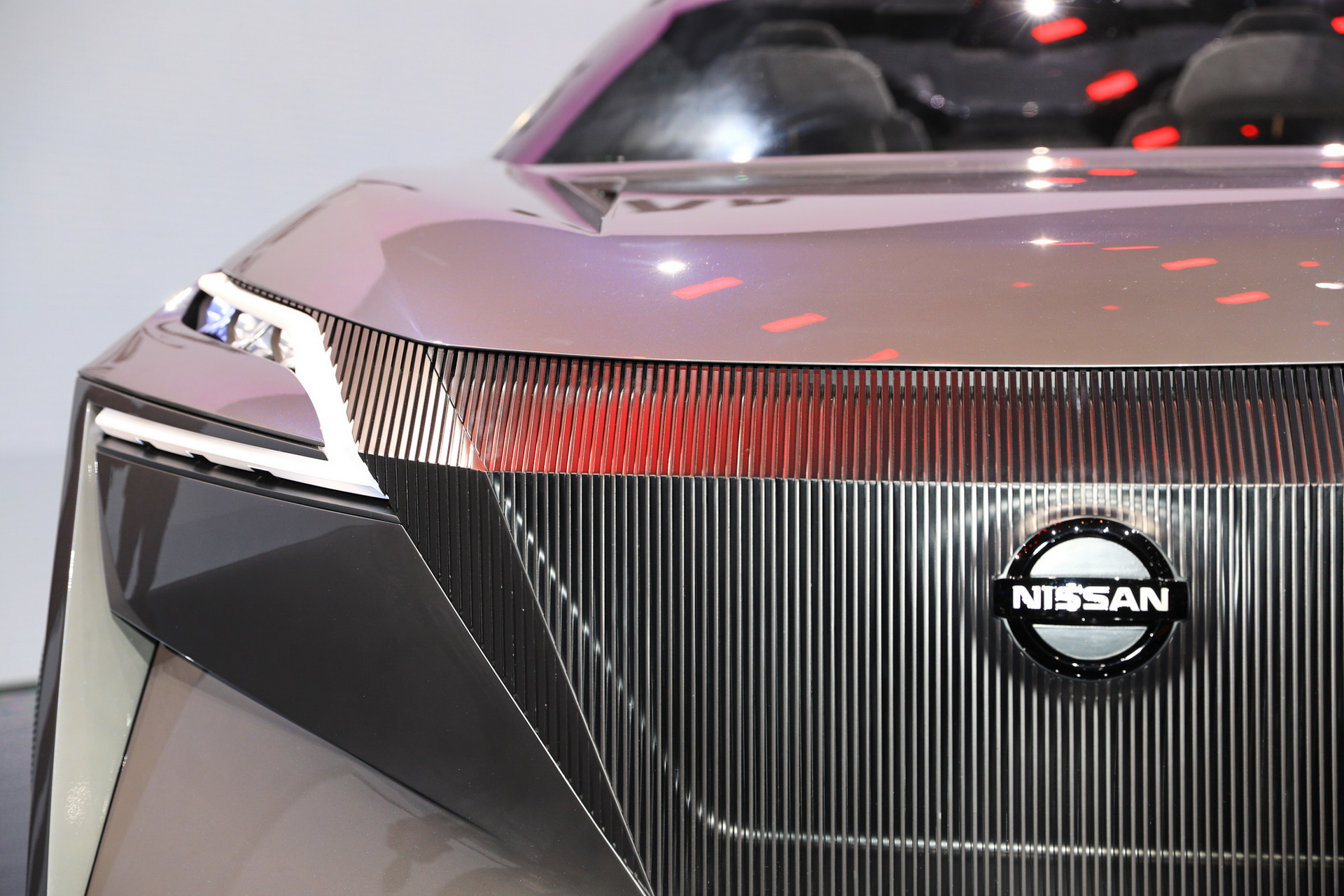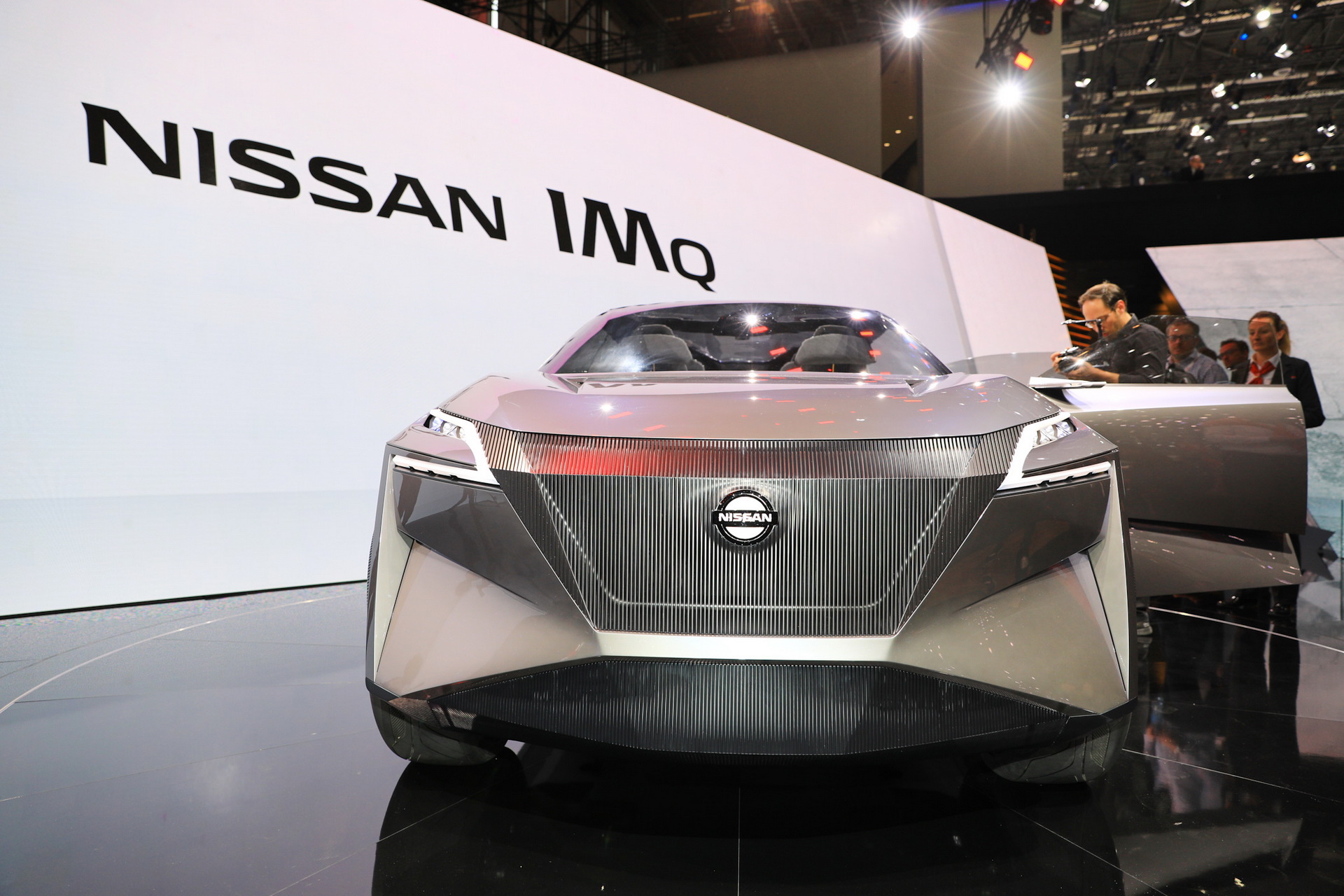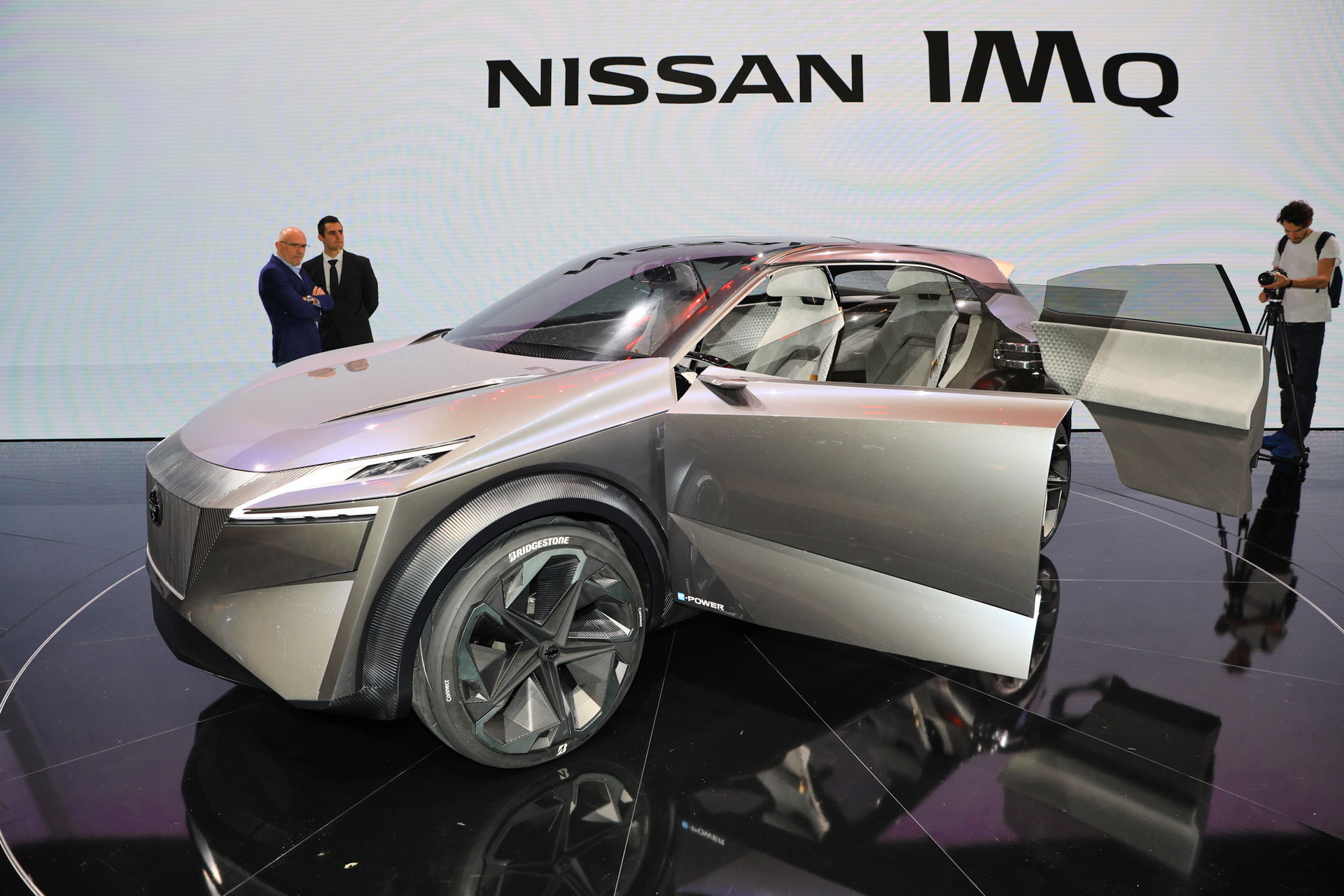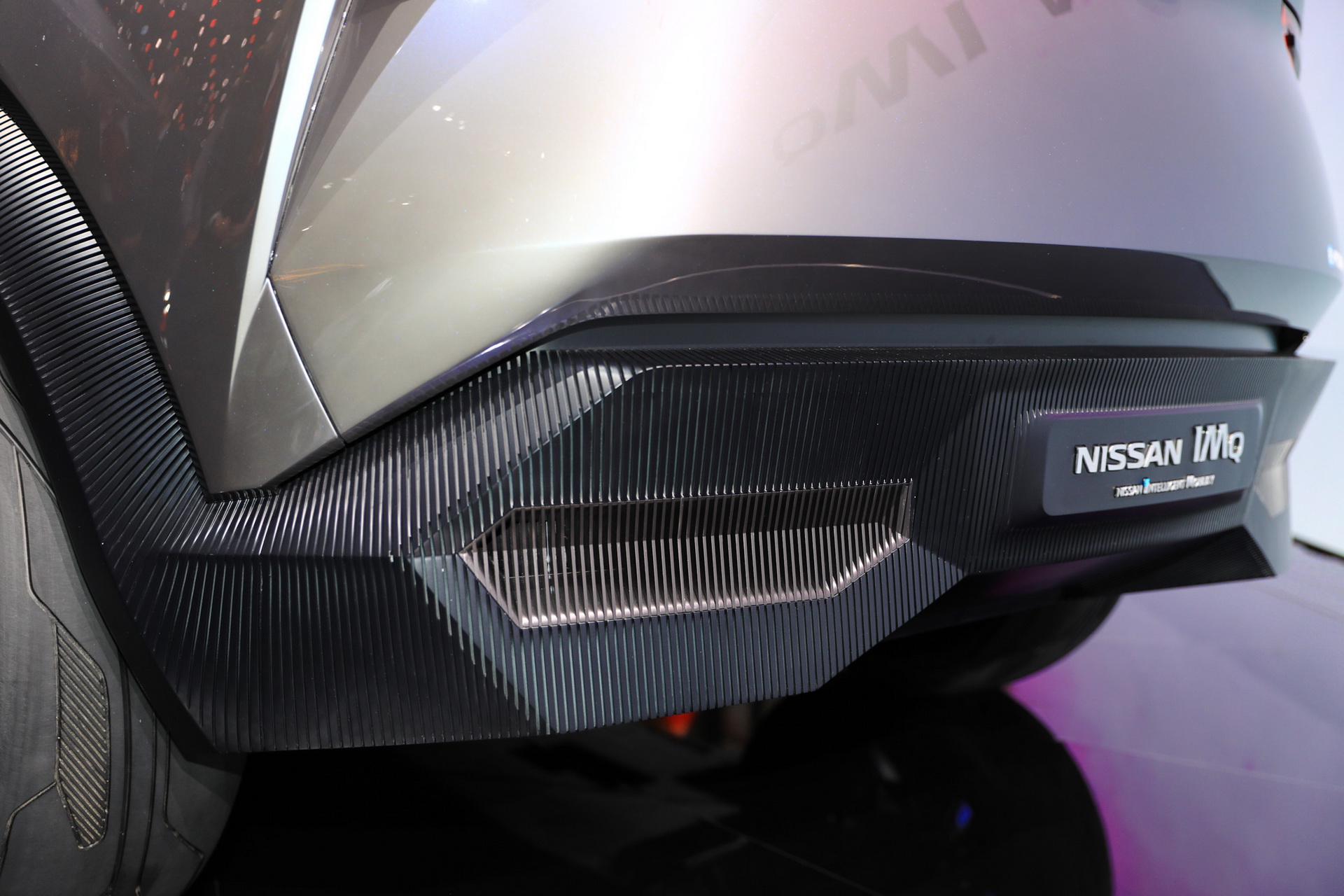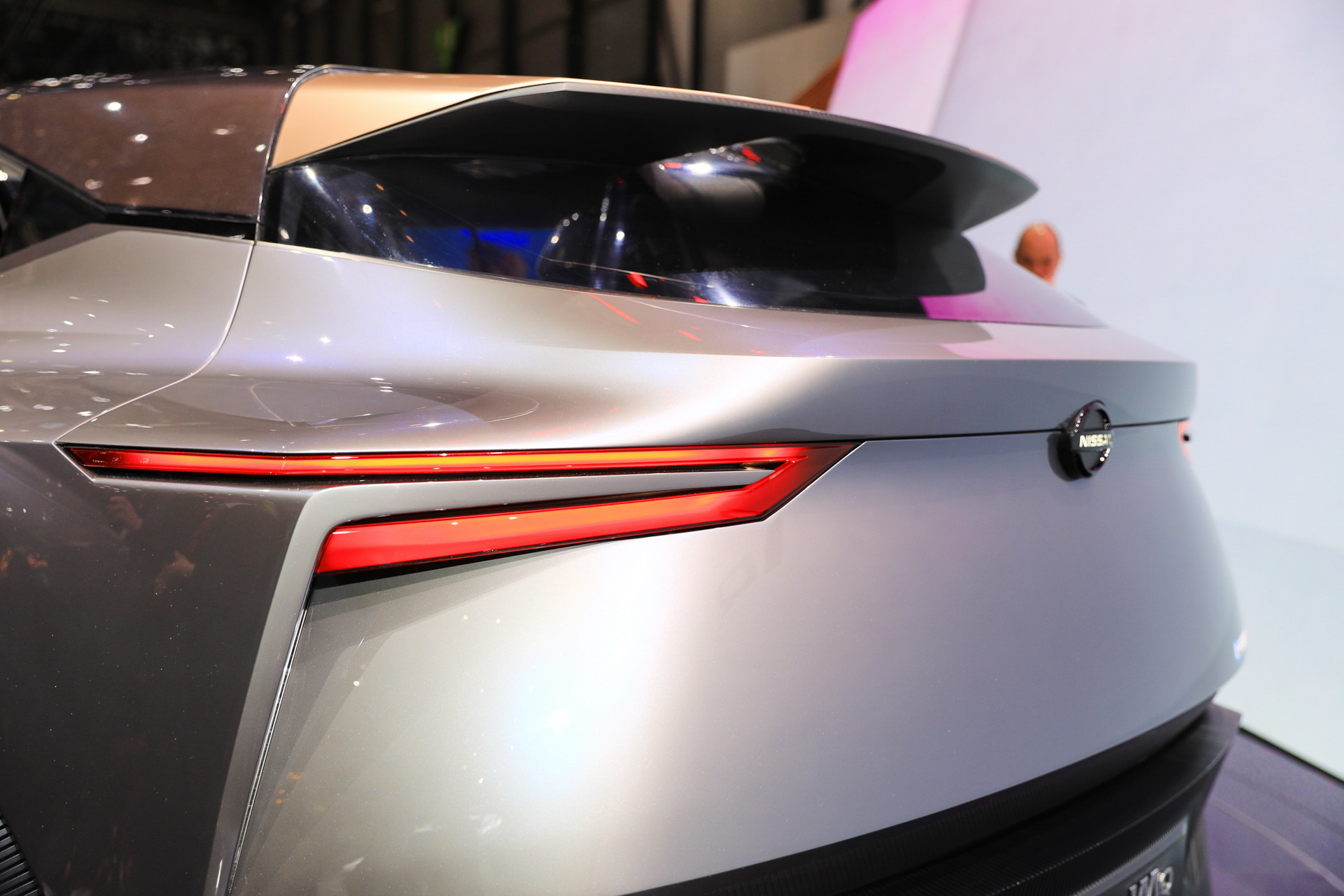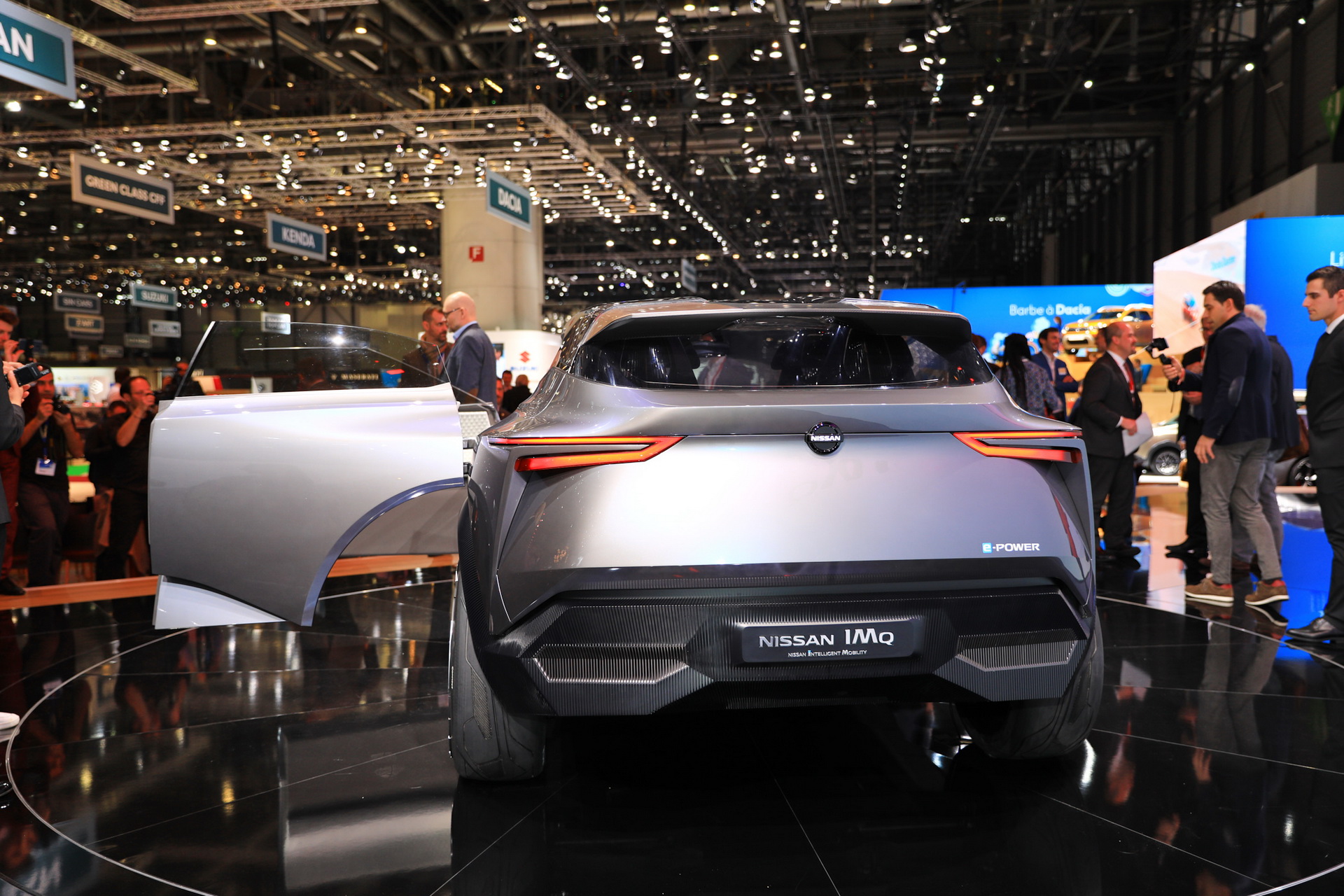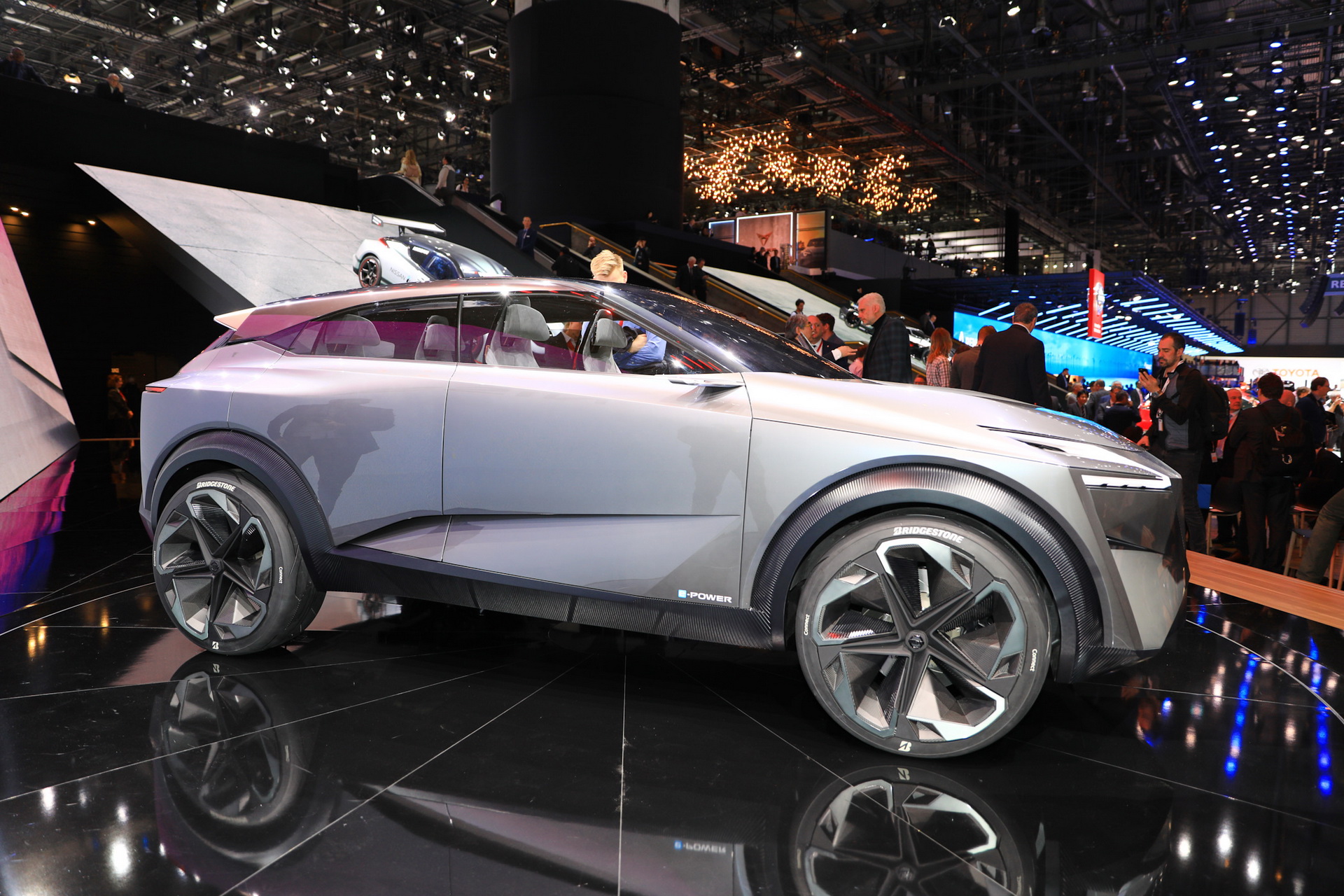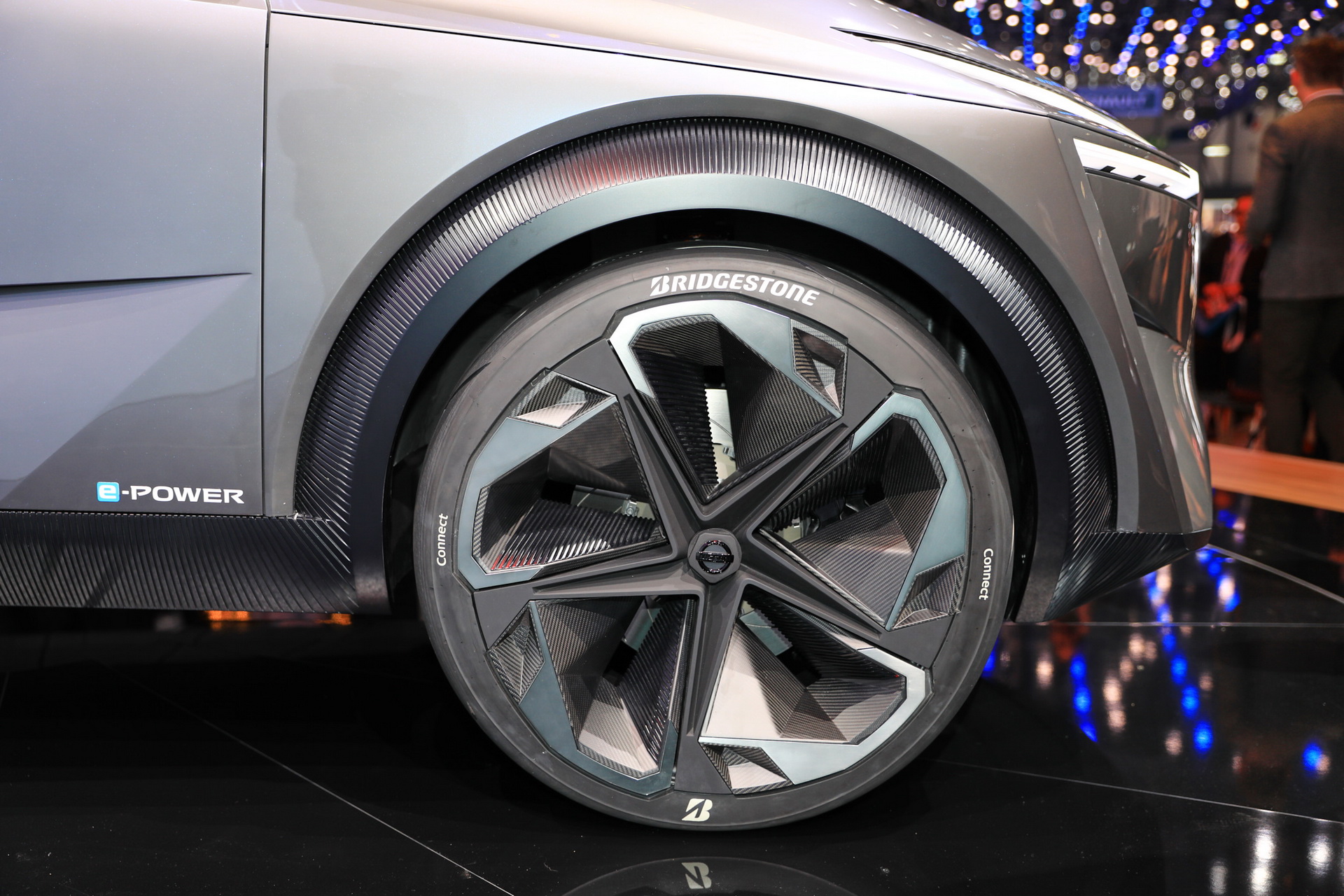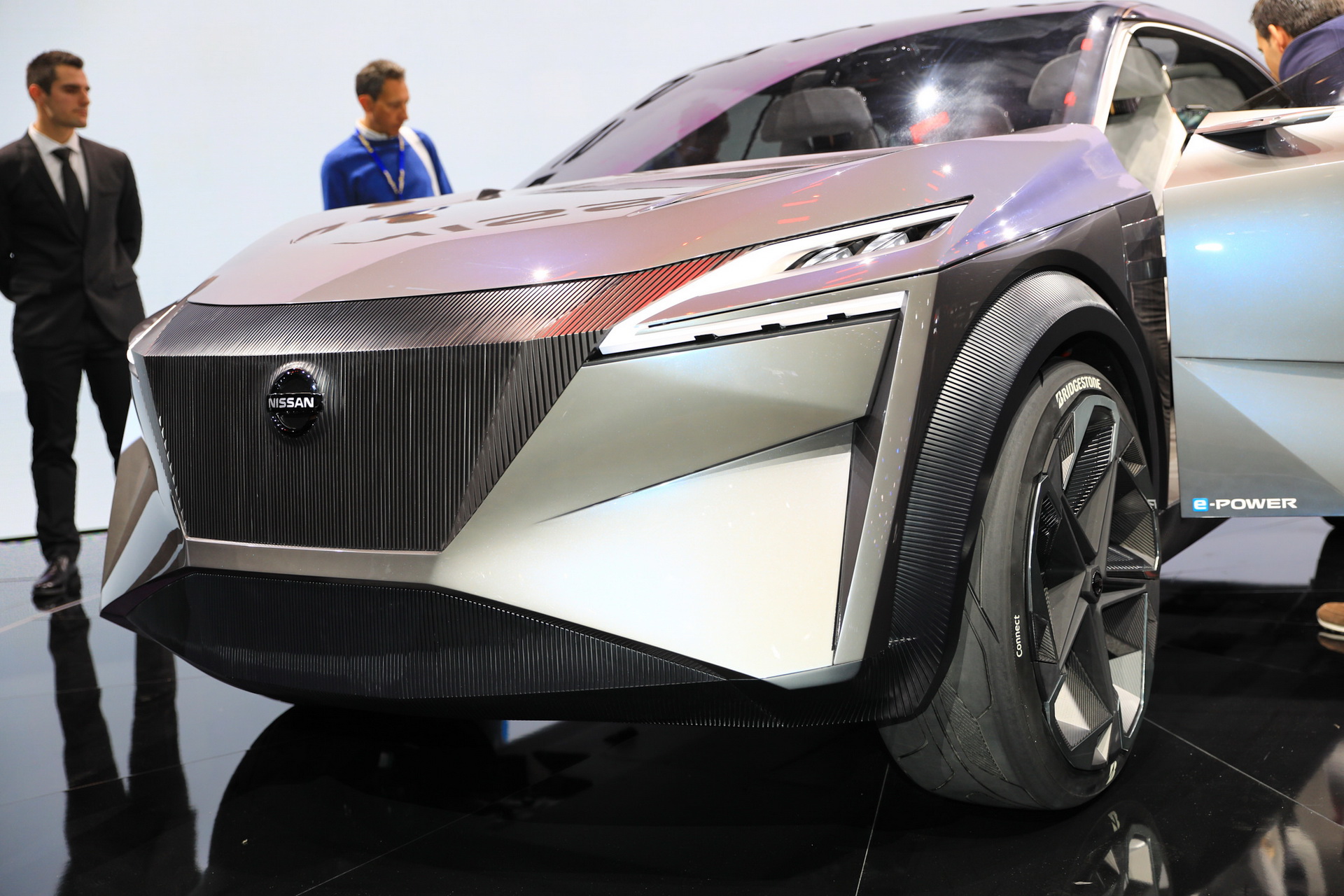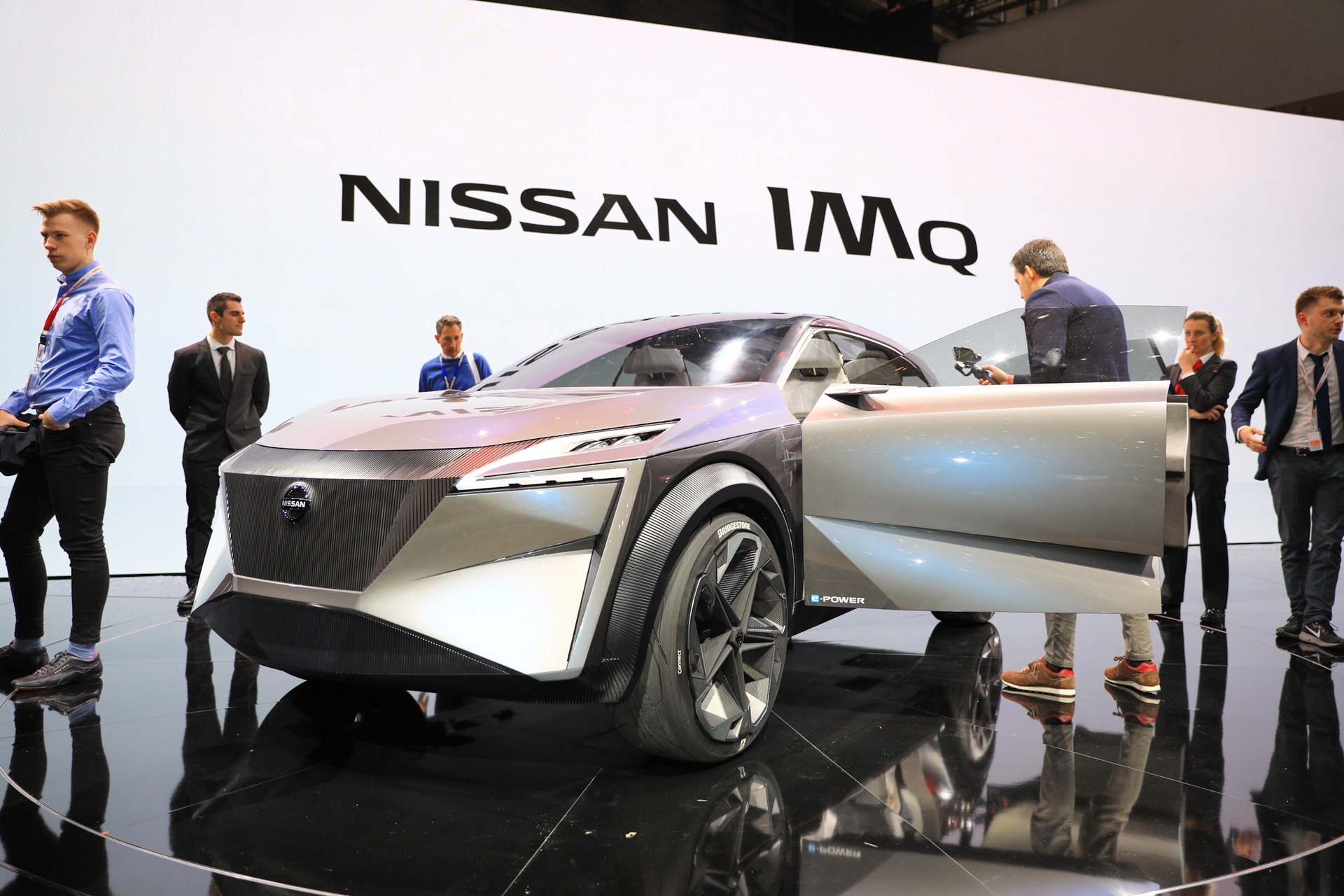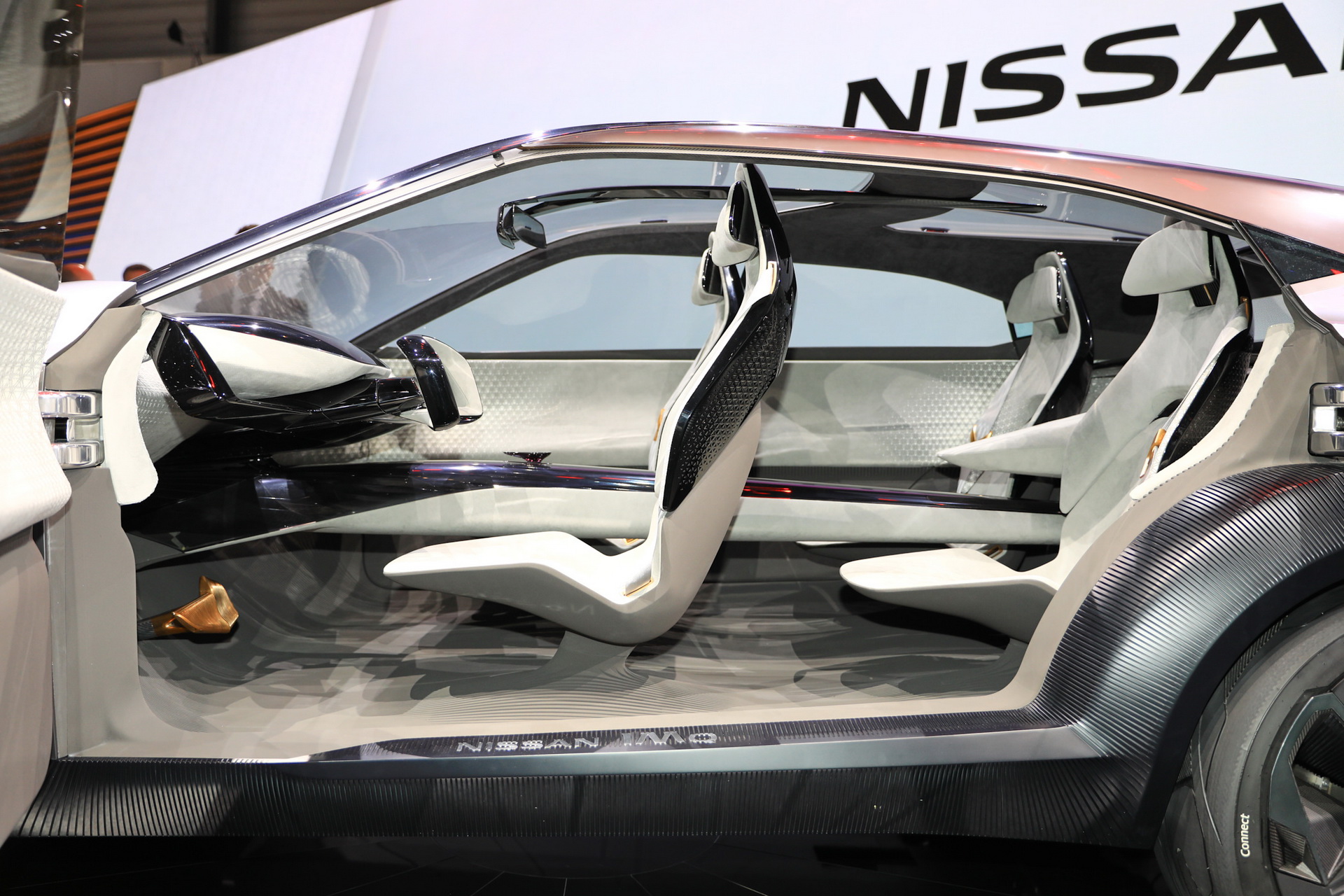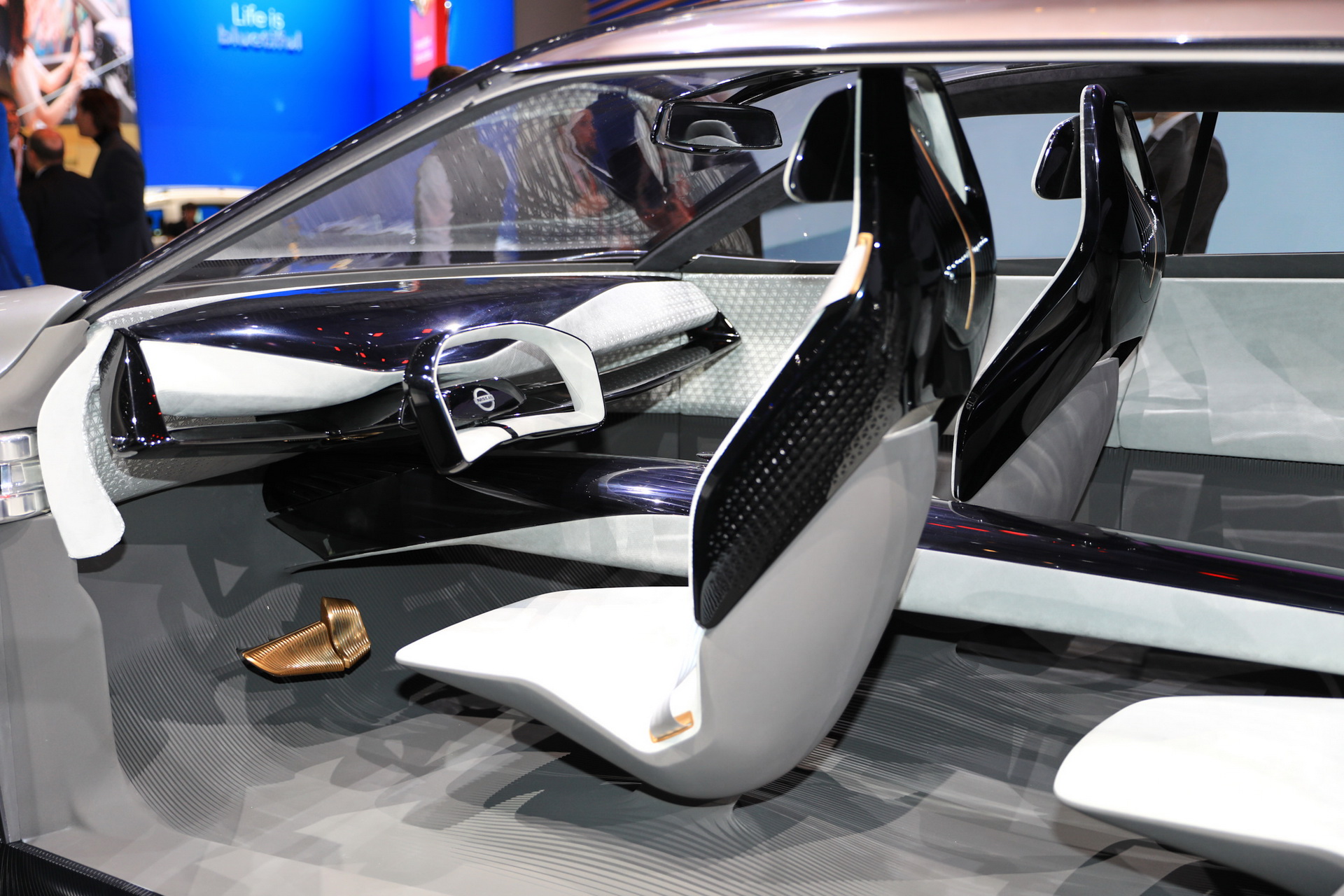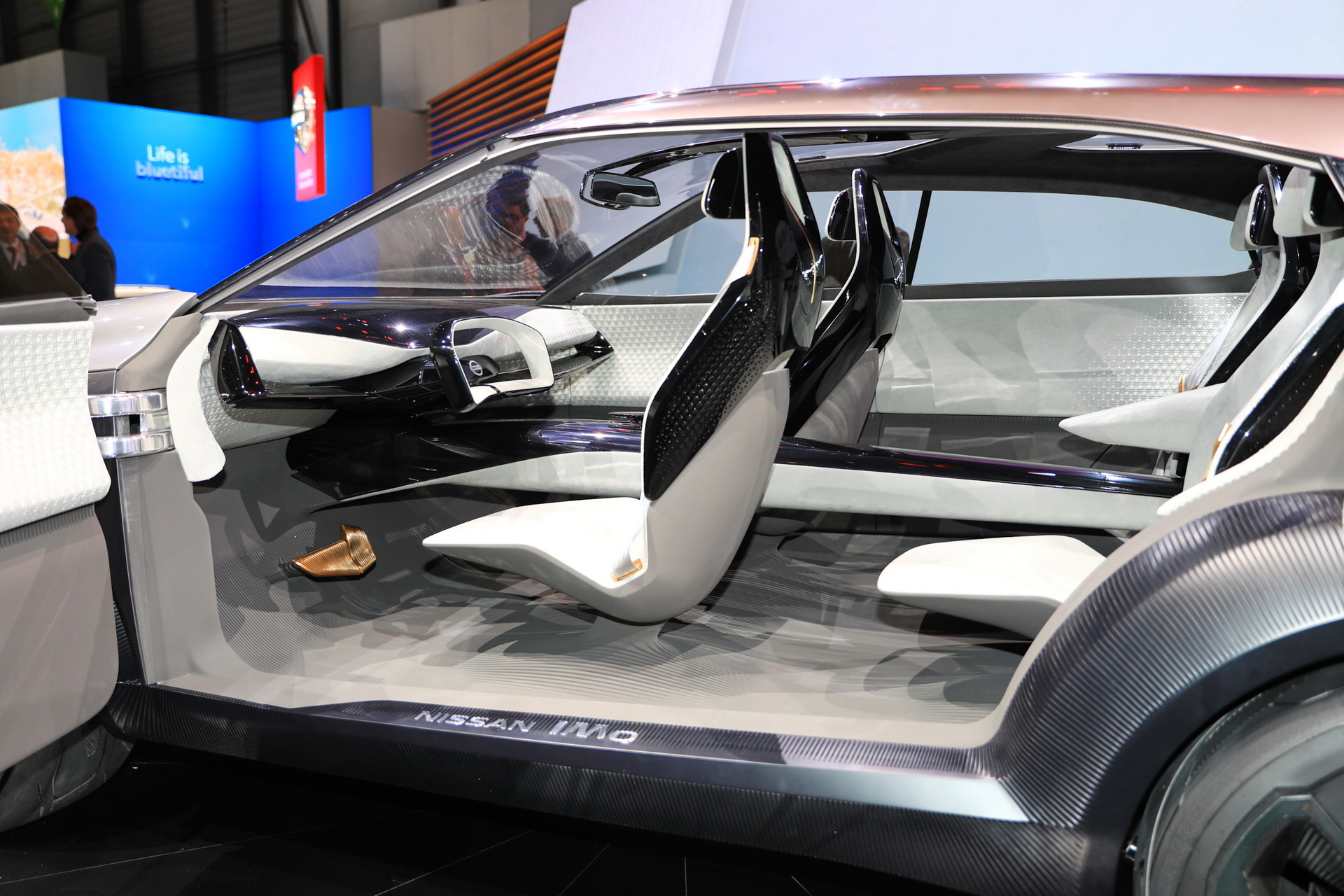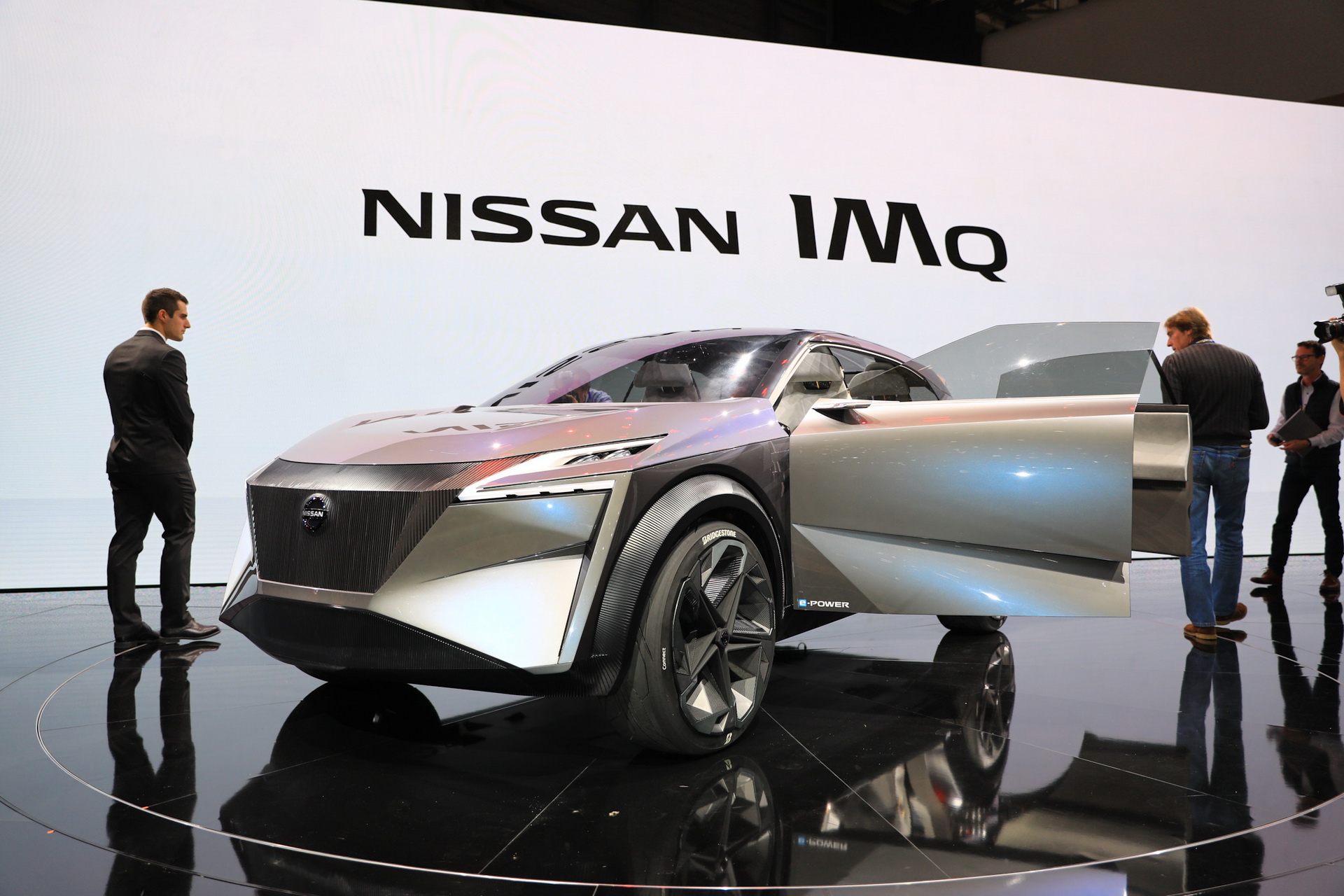Nissan has unveiled its IMQ Concept in Geneva as a design showcase for its next generation of crossovers. It blends Japanese heritage with so called human-centric technology and it is of course, fully-electric.
Powering the IMQ is Nissan’s next-generation e-POWER system, an electric motor drive rated at 250 kW (340 PS) and 700 Nm (516 lb-ft) of torque that’s said to deliver instant, linear acceleration.
The output is channeled through a new multi-motor all-wheel drive system, which on paper should make this concept a very capable off-road vehicle, especially in the snow, says Nissan.
Clean, effortless design
Based on its dimensions alone (4,558 mm / 179.4 inches in length, 1,560 mm / 61.4 inches in height and 1,940 mm / 76.3 inches in width), the IMQ belongs in Europe’s C-crossover segment. Its styling is particularly bold, featuring Nissan’s new design language, where the badge is now integrated into a more subtle V-motion grille, which in turn blends vertically into the hood and horizontally with the front bumper.
At the rear, there’s a vertical character line that drops from the light cluster to aid aerodynamics, while above there’s a new interpretation of Nissan’s “boomerang” lamp cluster. As for the concept’s profile aesthetic, there are 22-inch alloy wheels with bespoke Bridgestone Connect tires and also doors that are hinged at their outer edges and open in a very futuristic way to reveal four individual seats.
The cabin is where the IMQ gets really futuristic with its design. The dashboard is dominated by an 840 mm screen embedded into the instrument panel, while a smaller secondary screen above the center console is where its Virtual Personal Assistant resides.
“The IMQ’s design combines traditional and modern Japanese influences and shows what’s possible when future crossovers are powered by Nissan Intelligent Mobility,” said Nissan senior VP for design, Alfonso Albaisa. “With the IMQ, the interior and exterior are seamlessly blended together, signaling what our design direction may be for Nissan’s third generation of crossovers in Europe.”
Invisible to Visible
That’s the name of Nissan’s 3D interface tech, meant to help occupants “see the invisible” through the automaker’s Omni-Sensing technology where information from the virtual world is displayed before the driver and passenger, enriching their mixed-reality experience.
I2V can help you see around corners, visualize information about traffic jams (including their causes), and get this, even put a 3D augmented-reality avatar inside the car for your enjoyment.
Finally, there’s the concept’s autonomous driver tech, comprised of the ProPILOT driver assistant system which uses advanced sensors, radars and cameras to interpret road, traffic and information signals.



